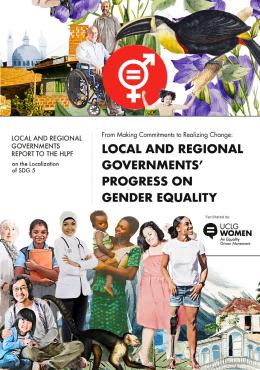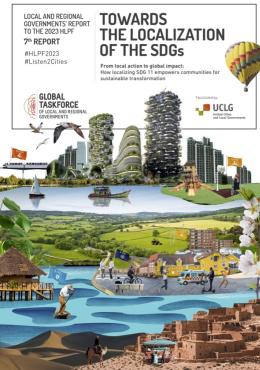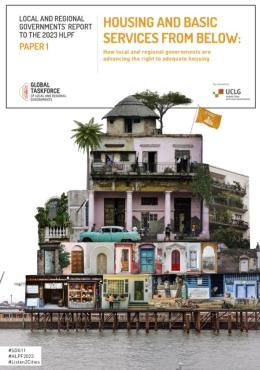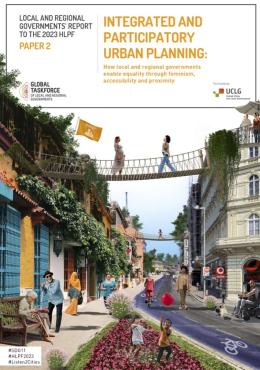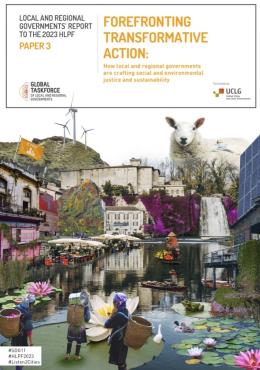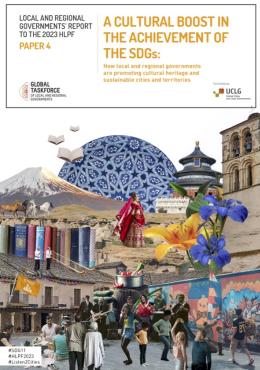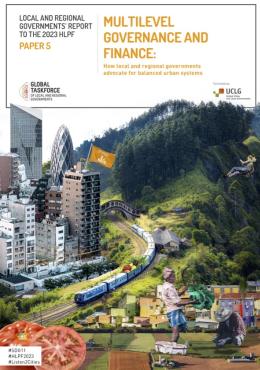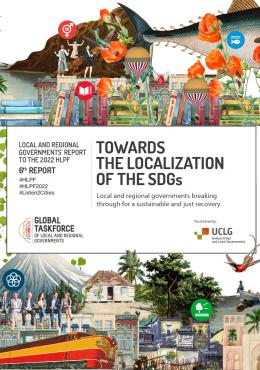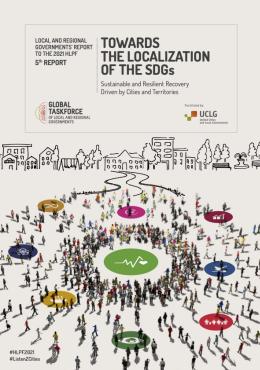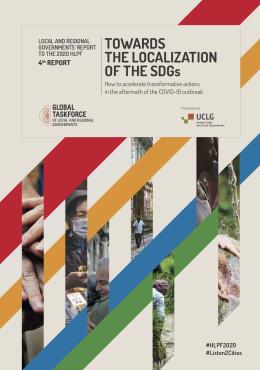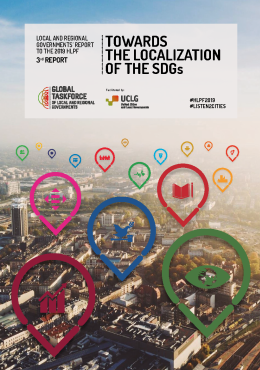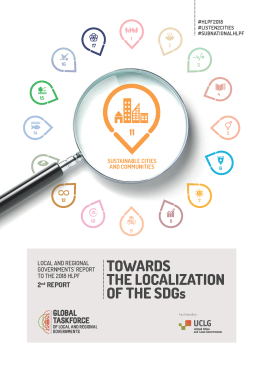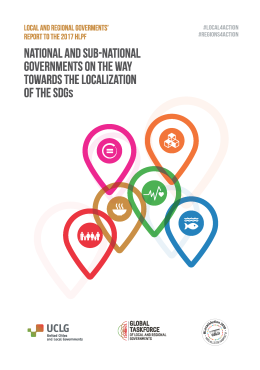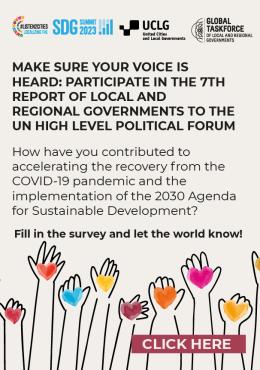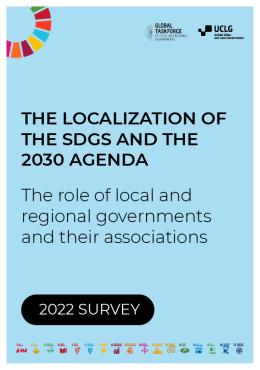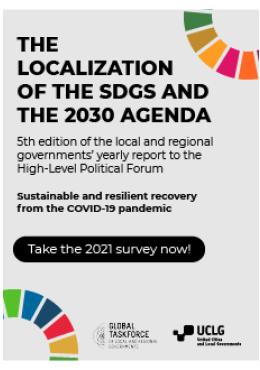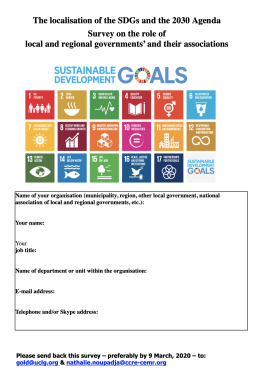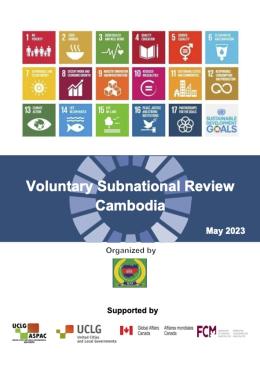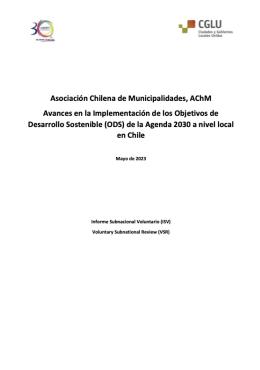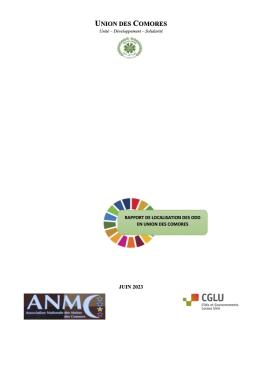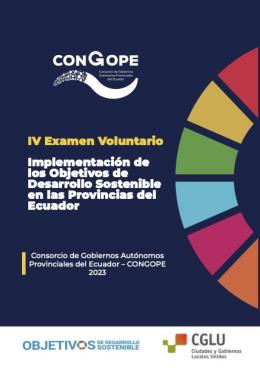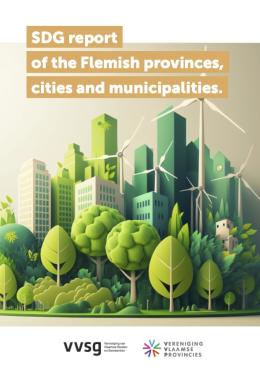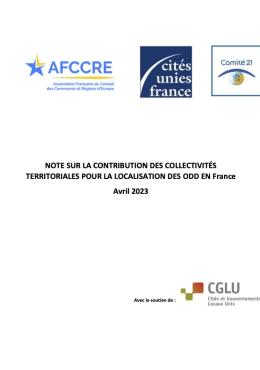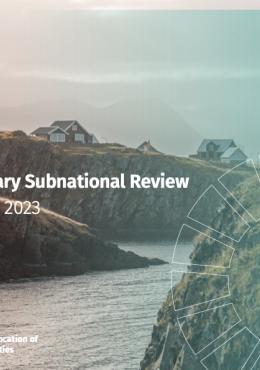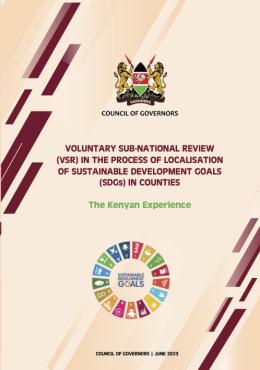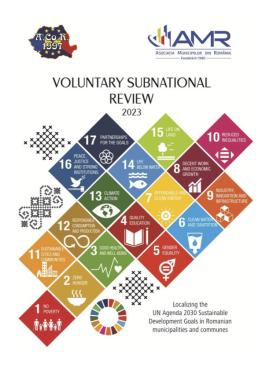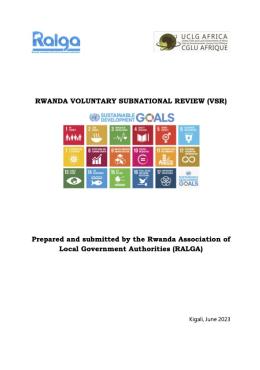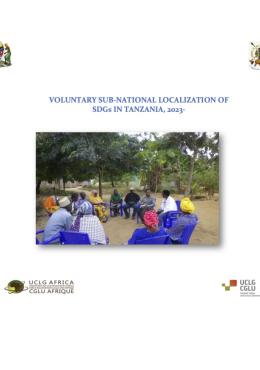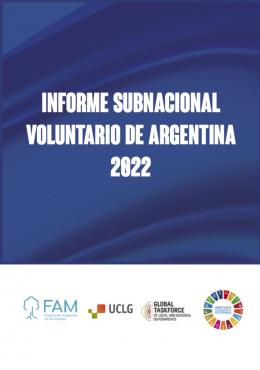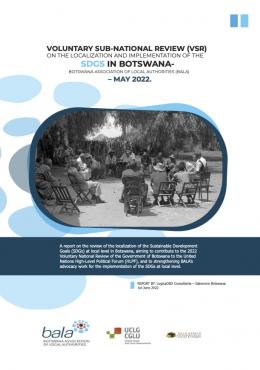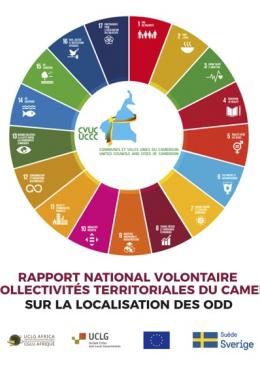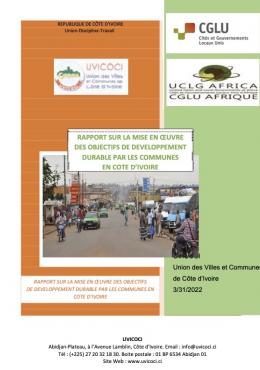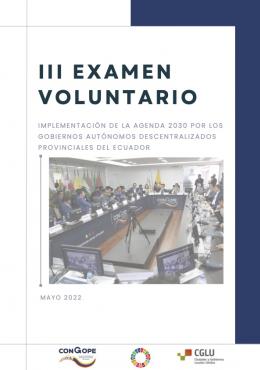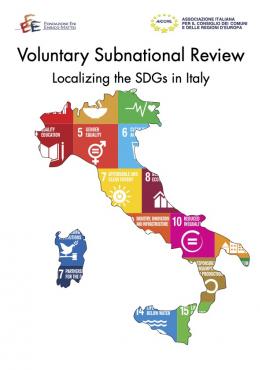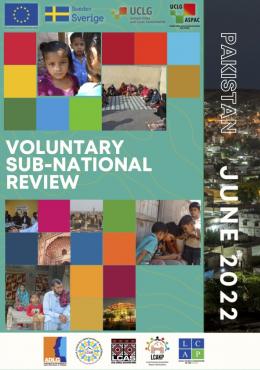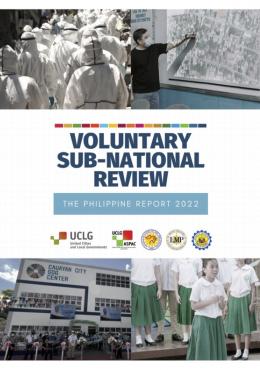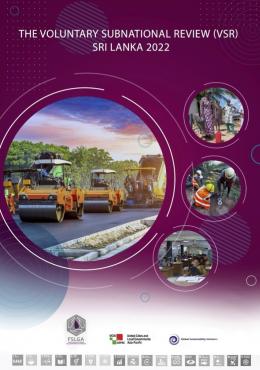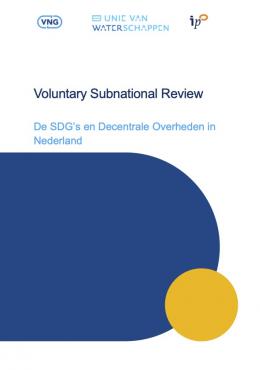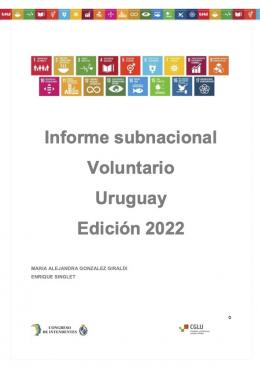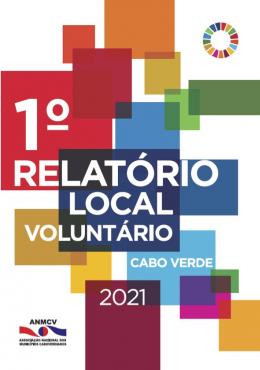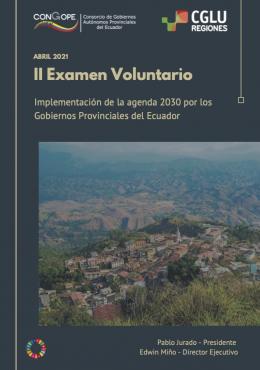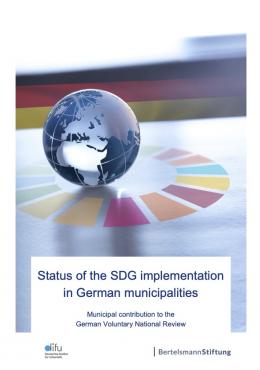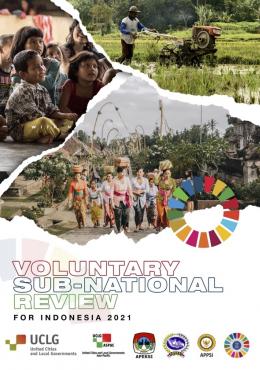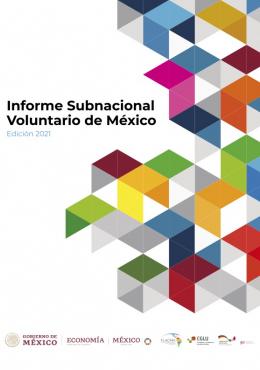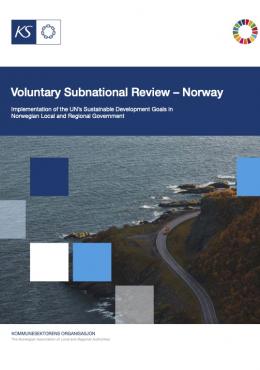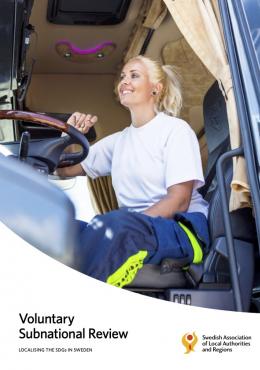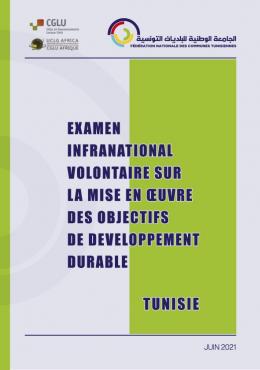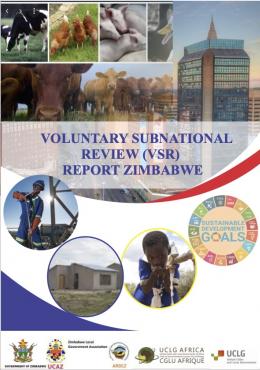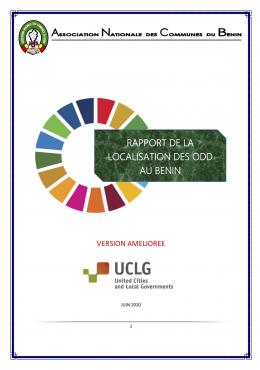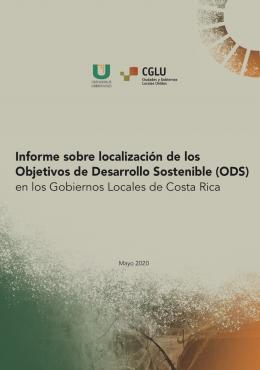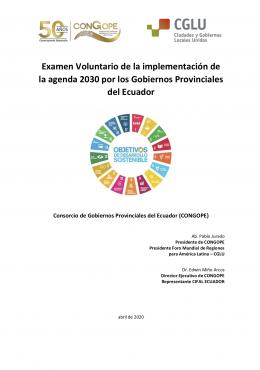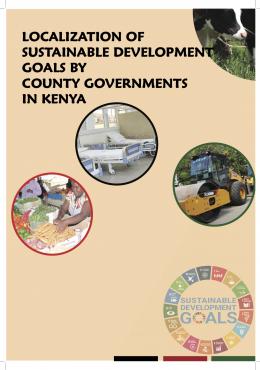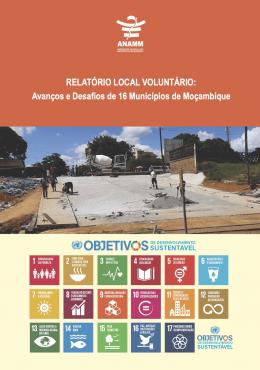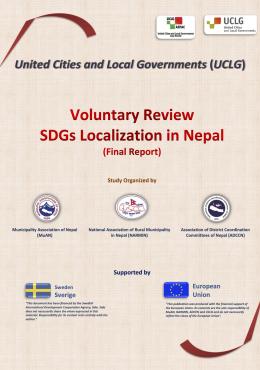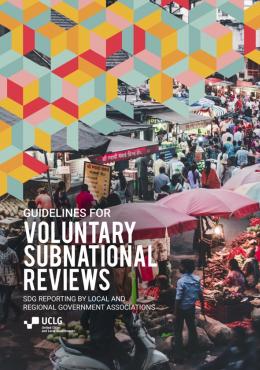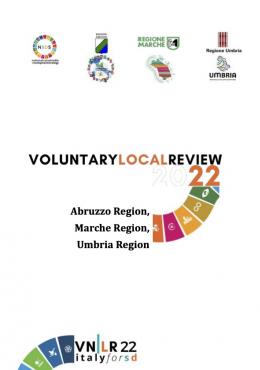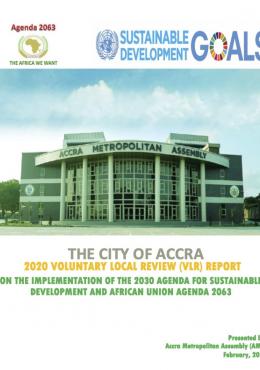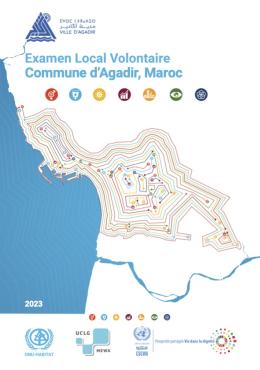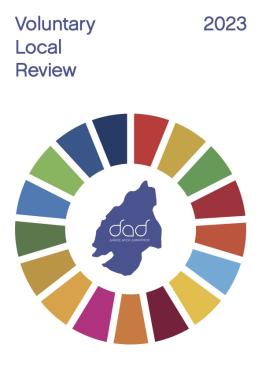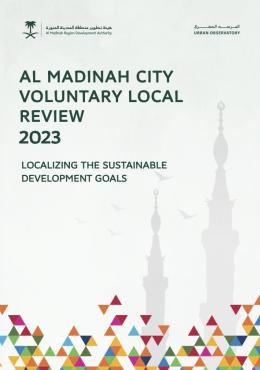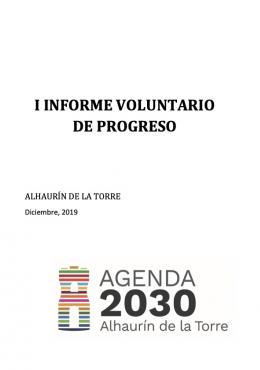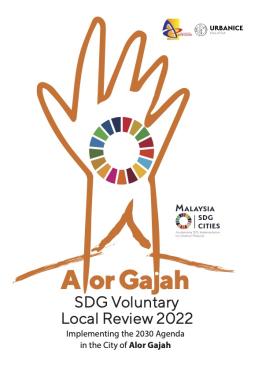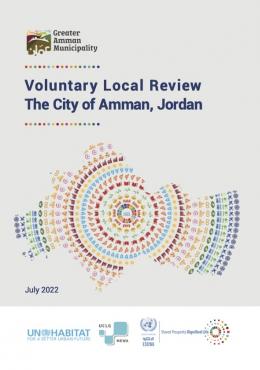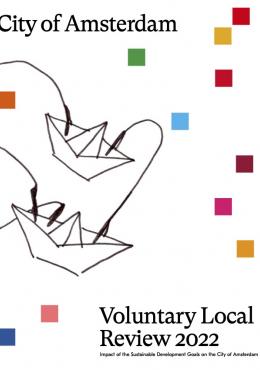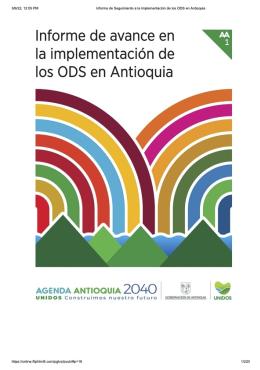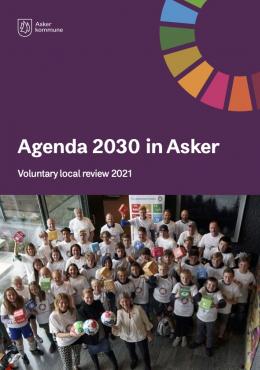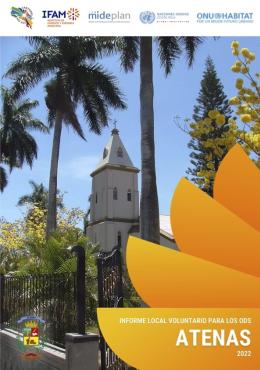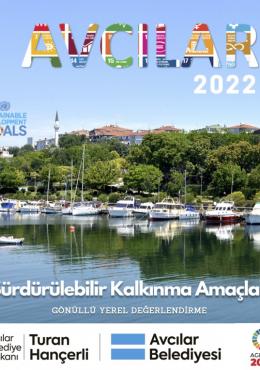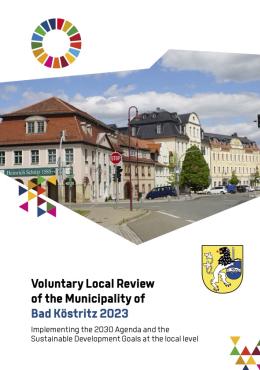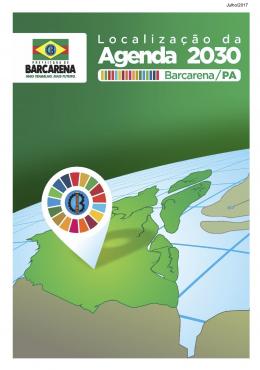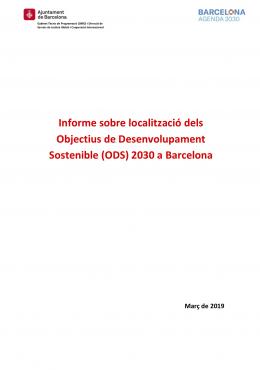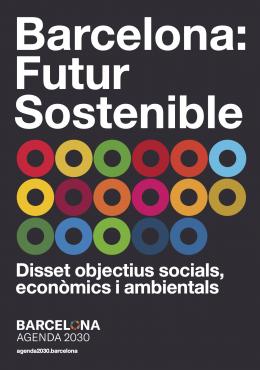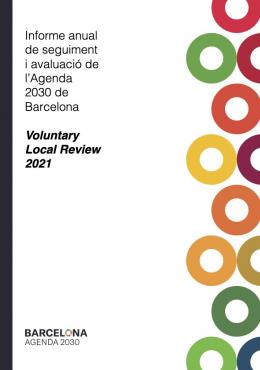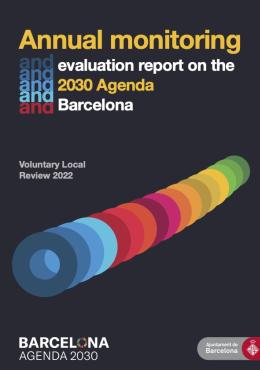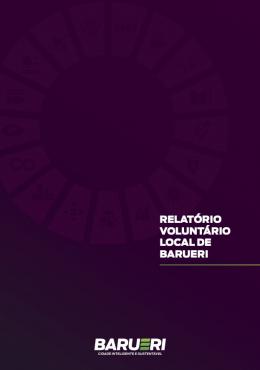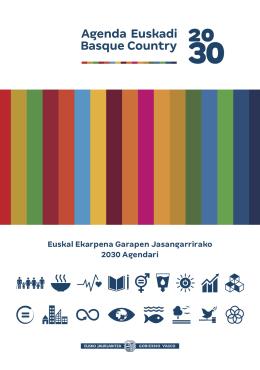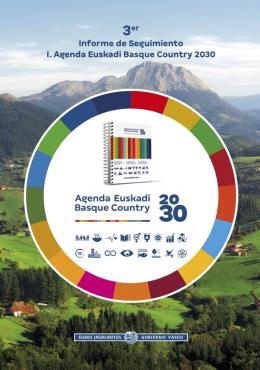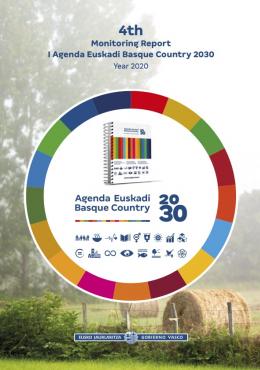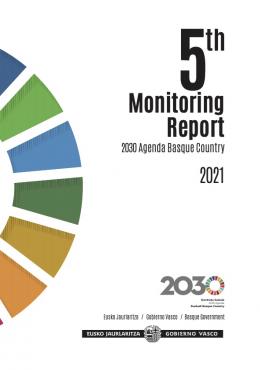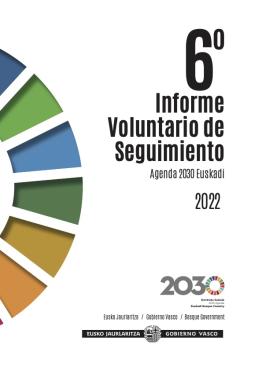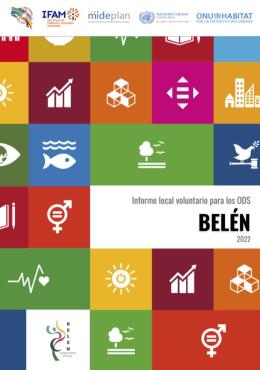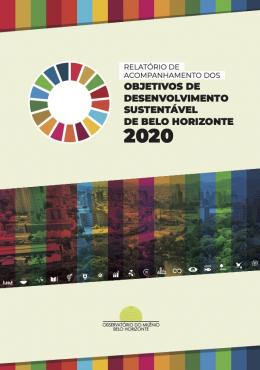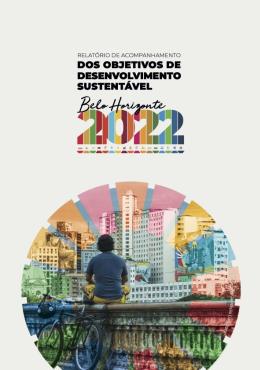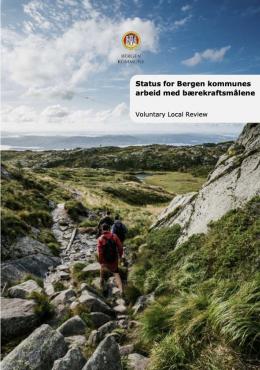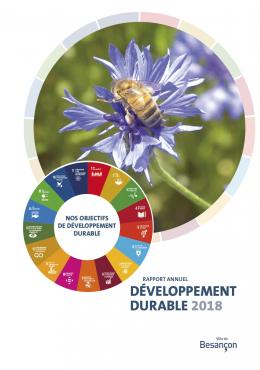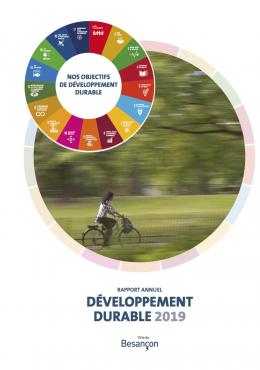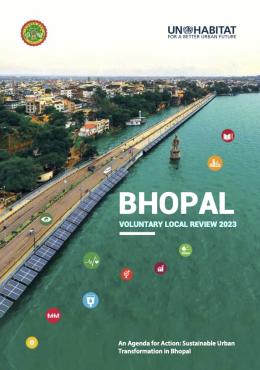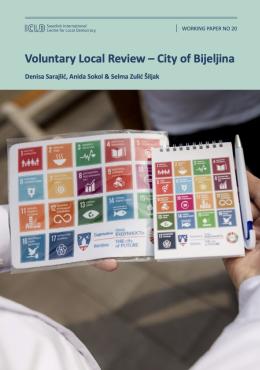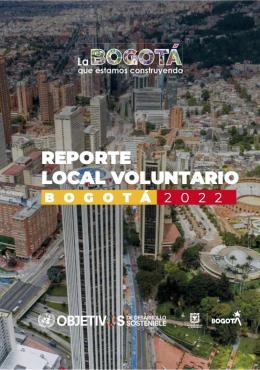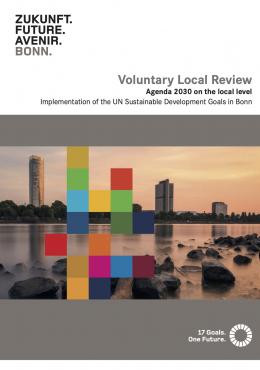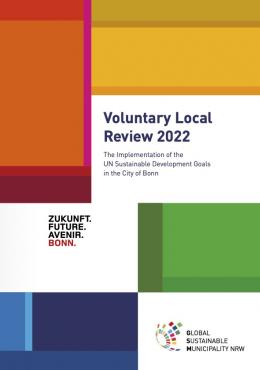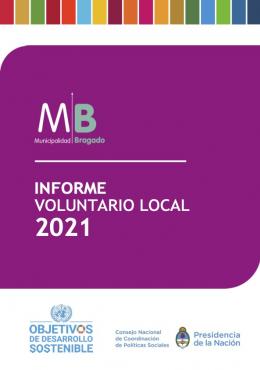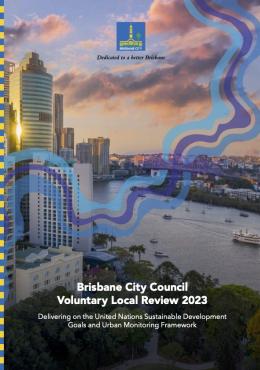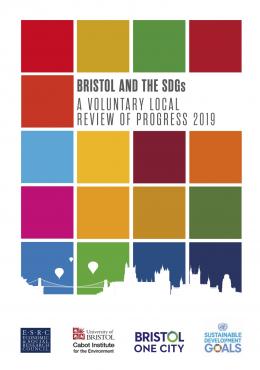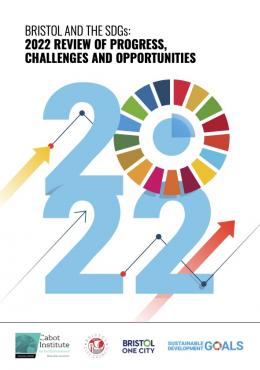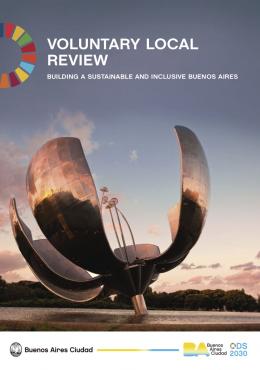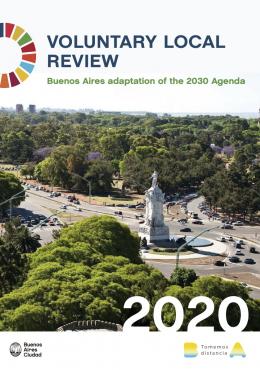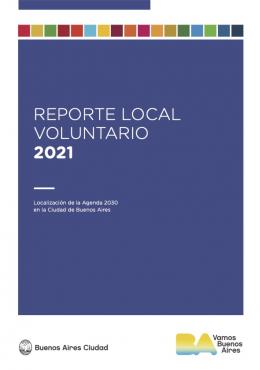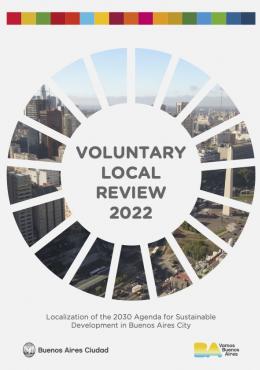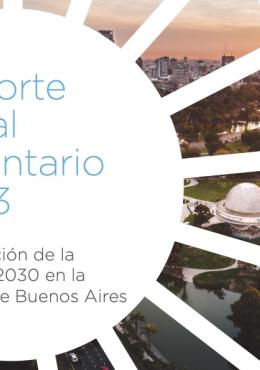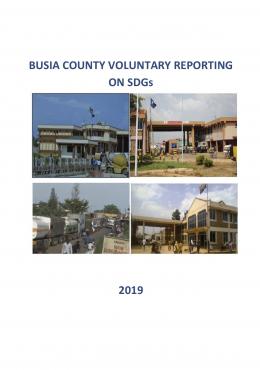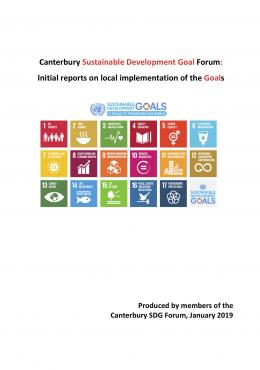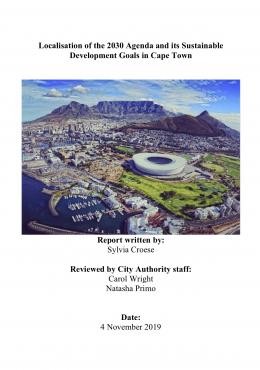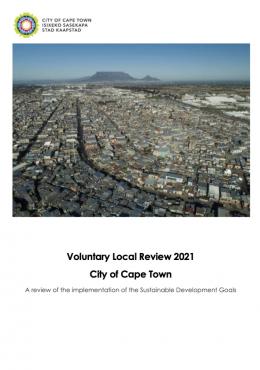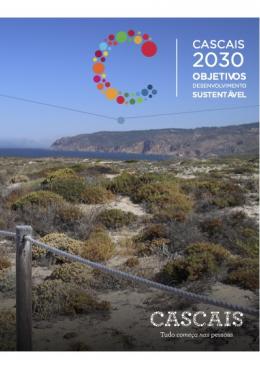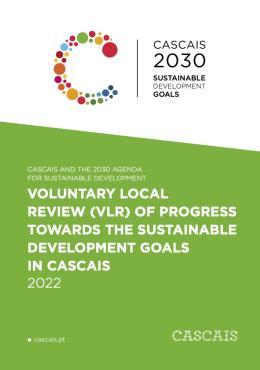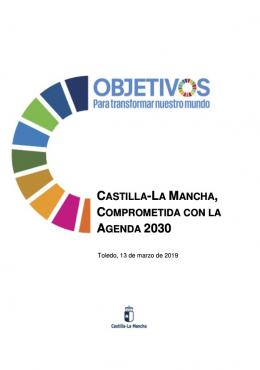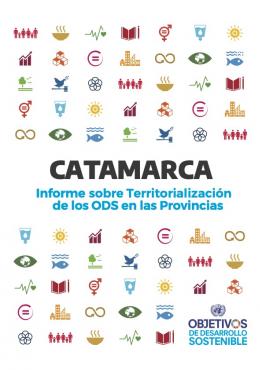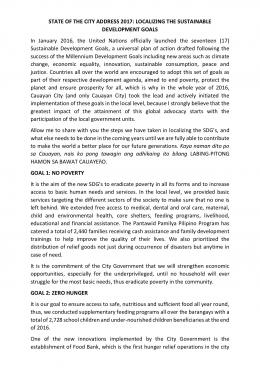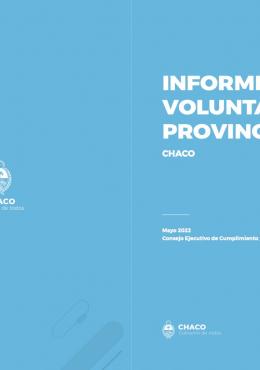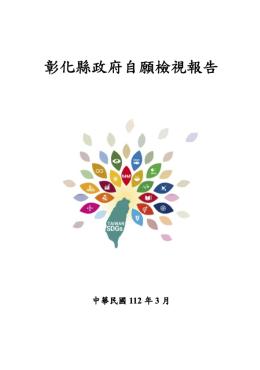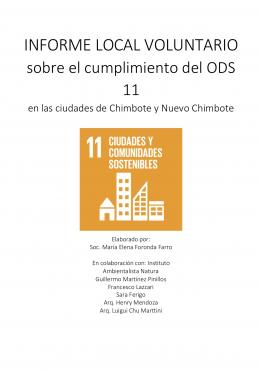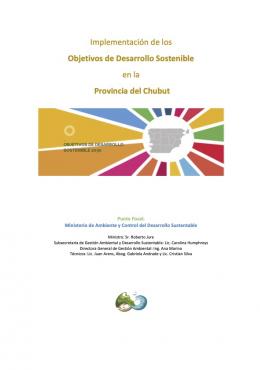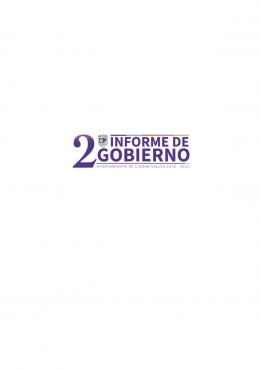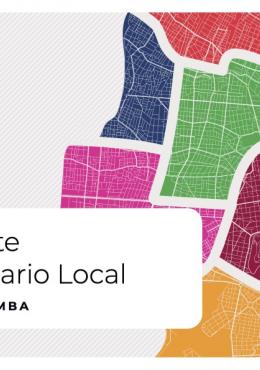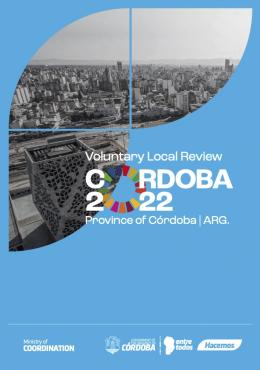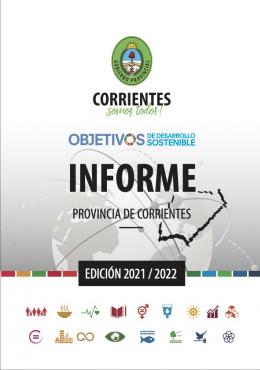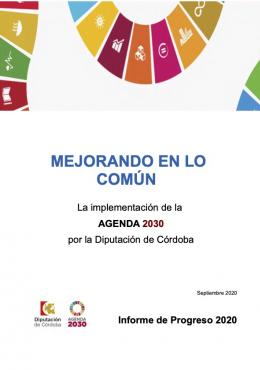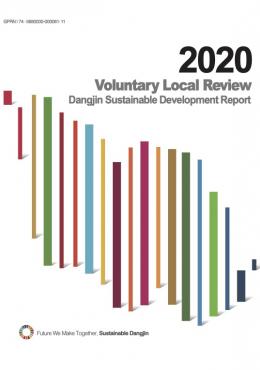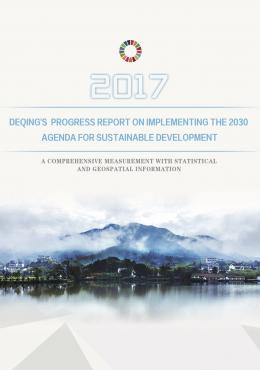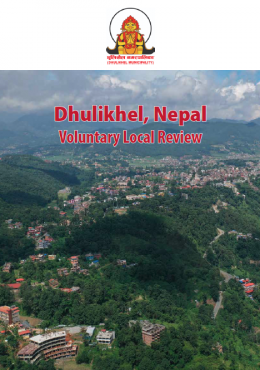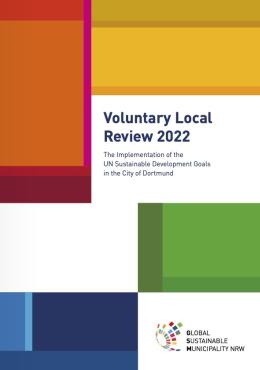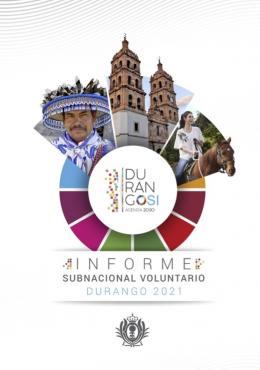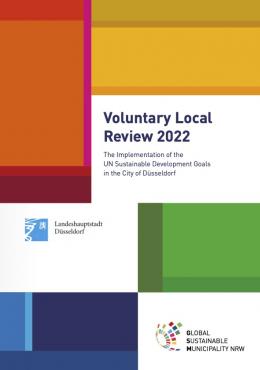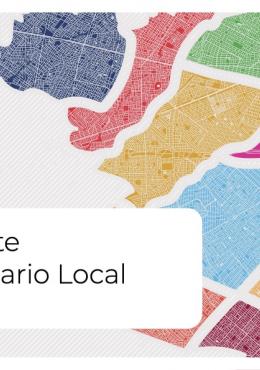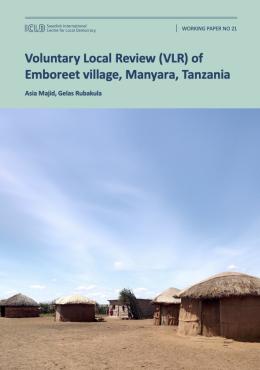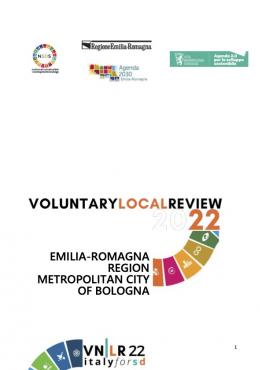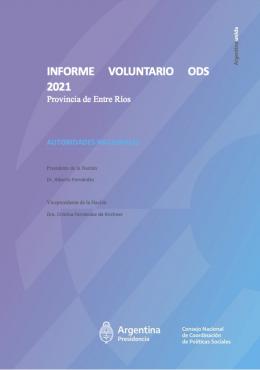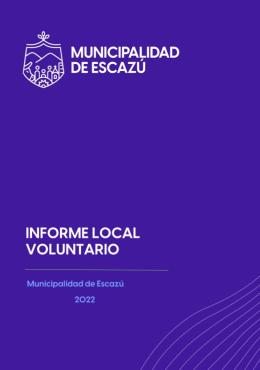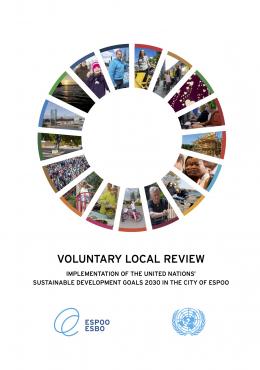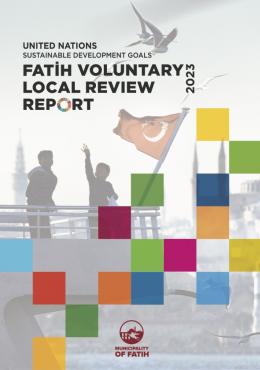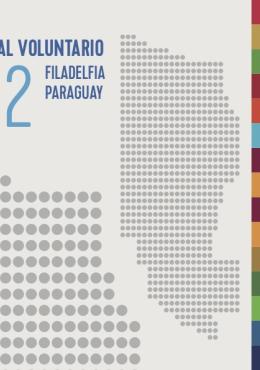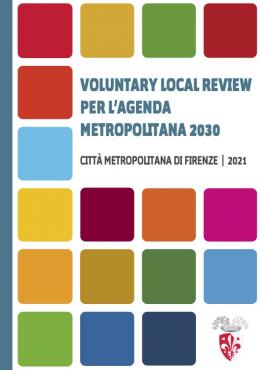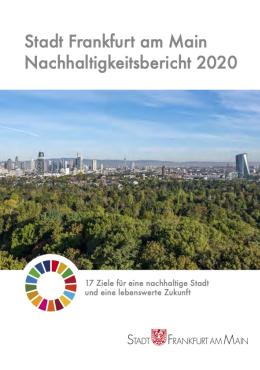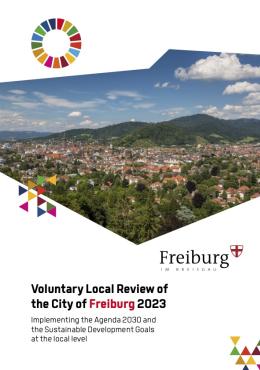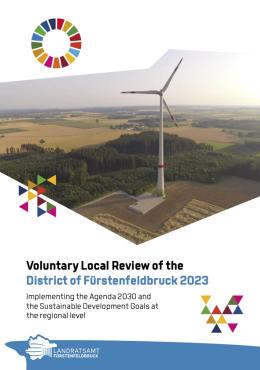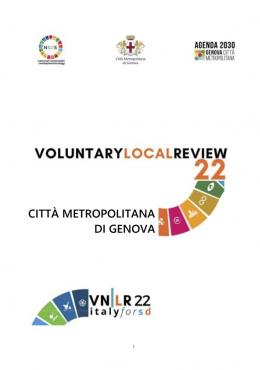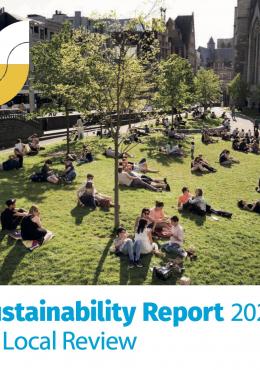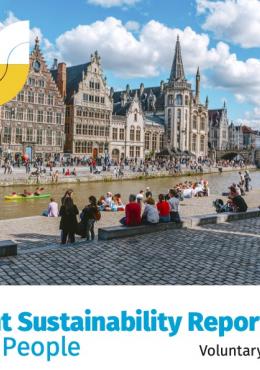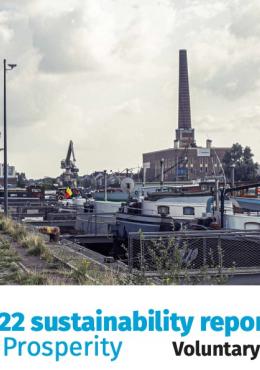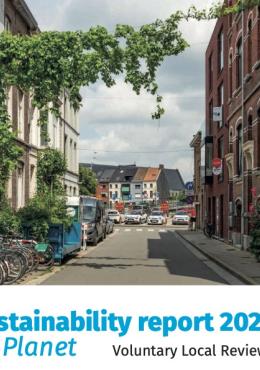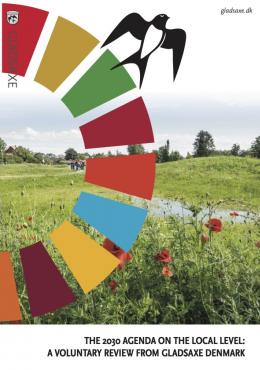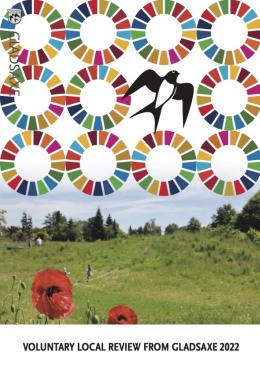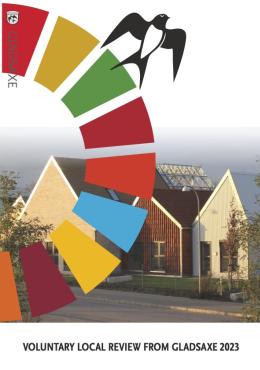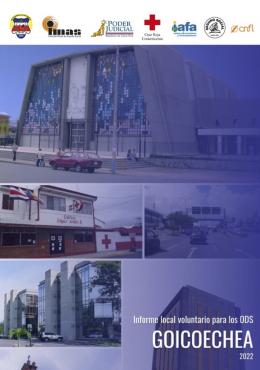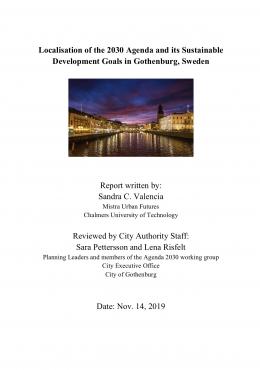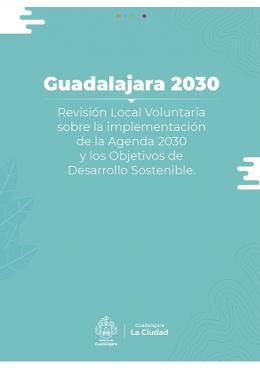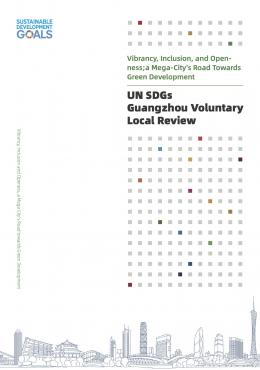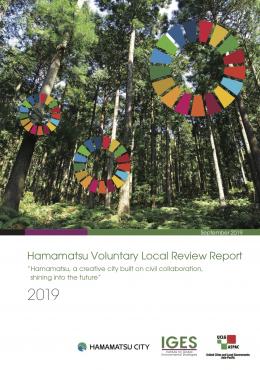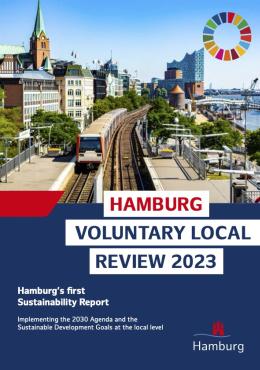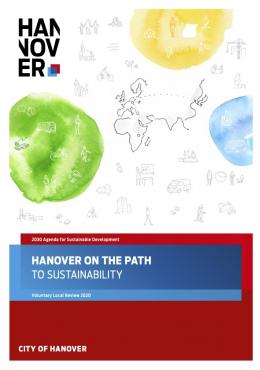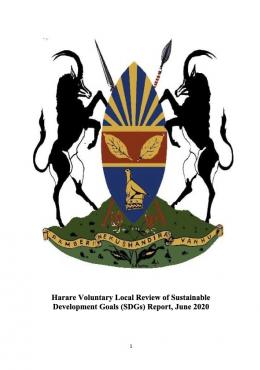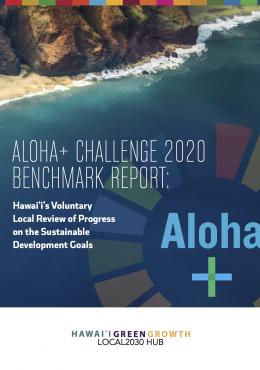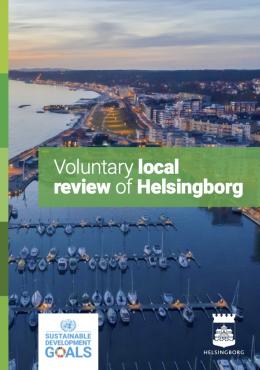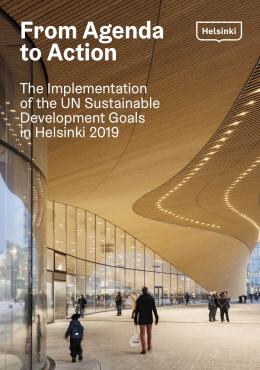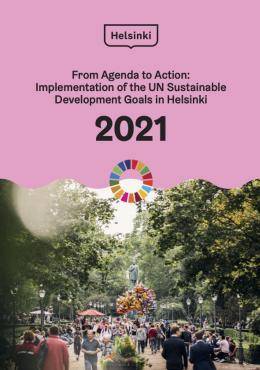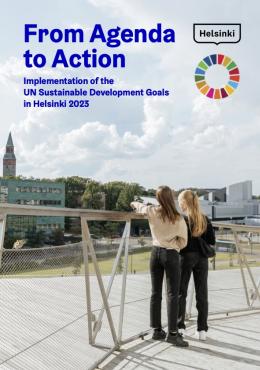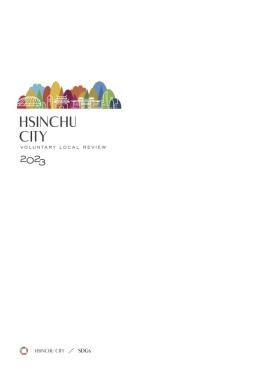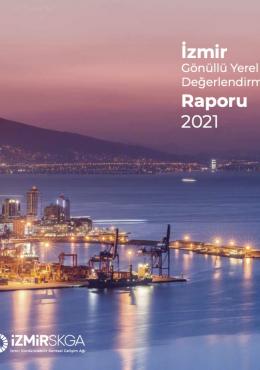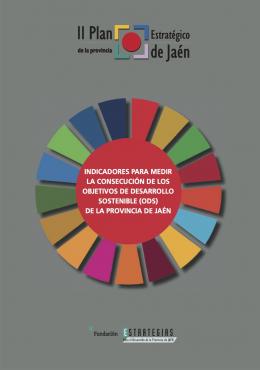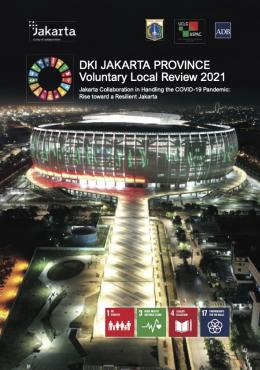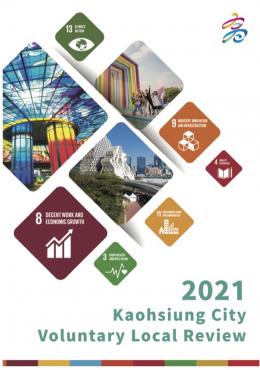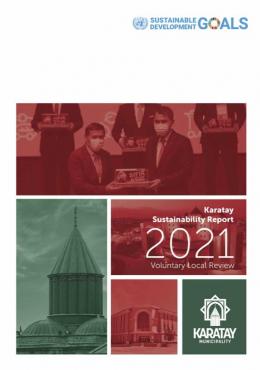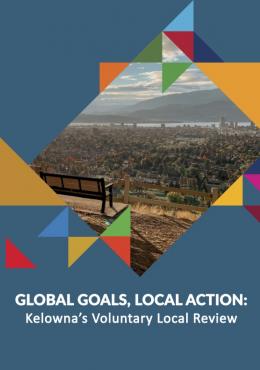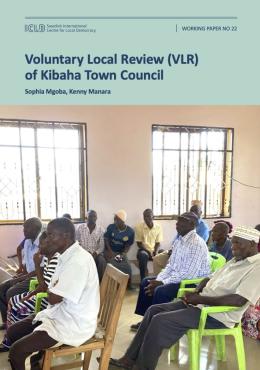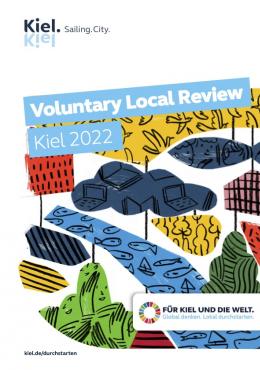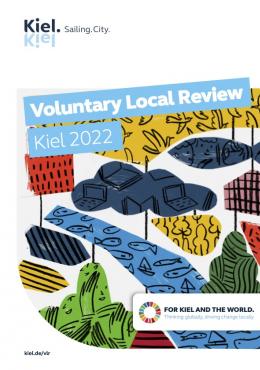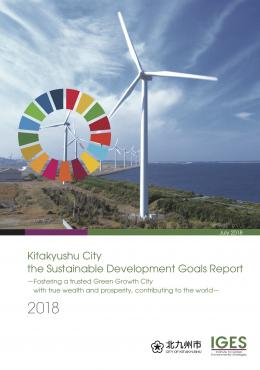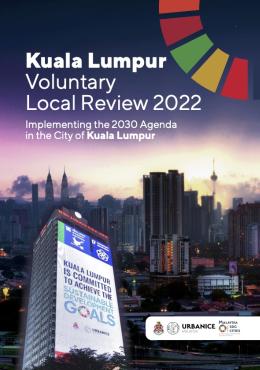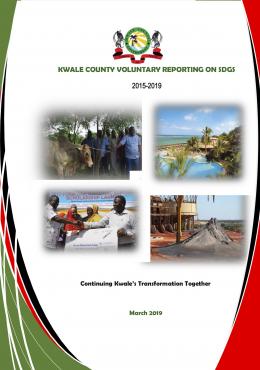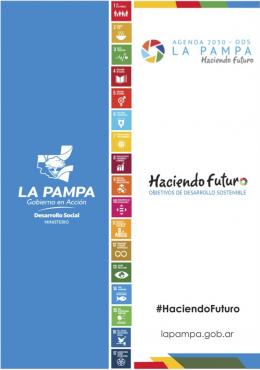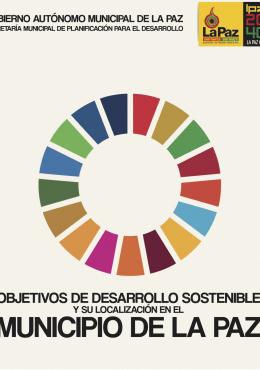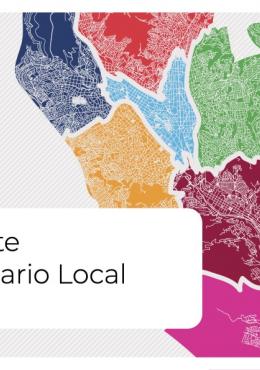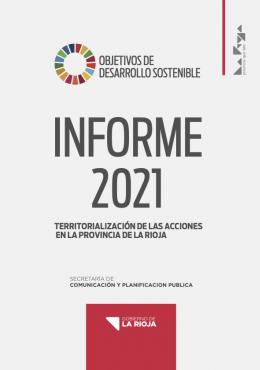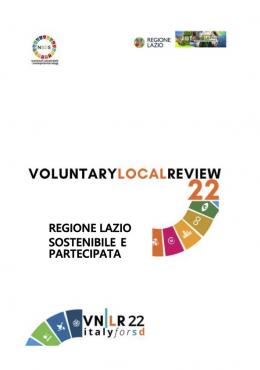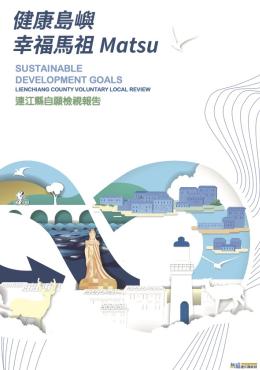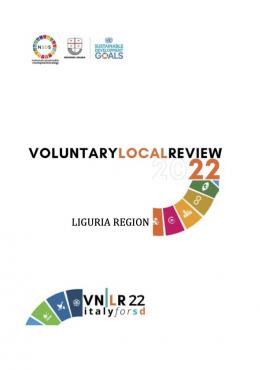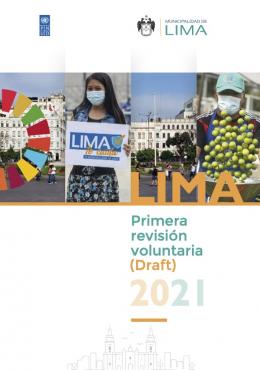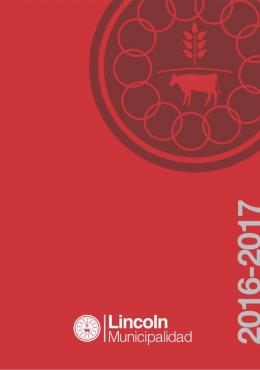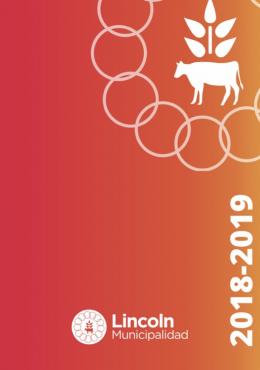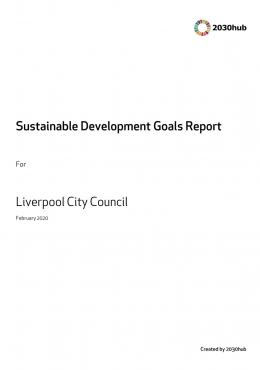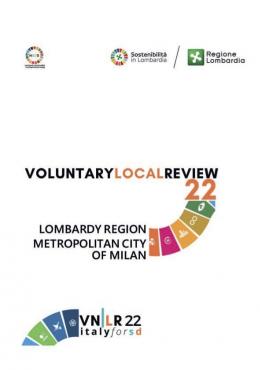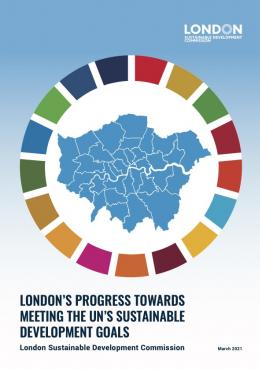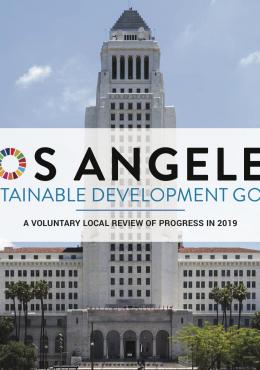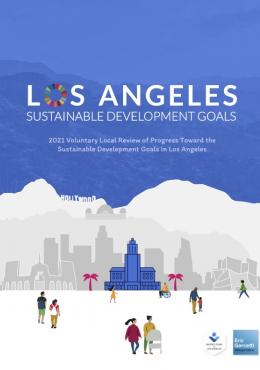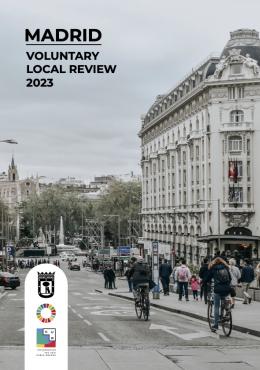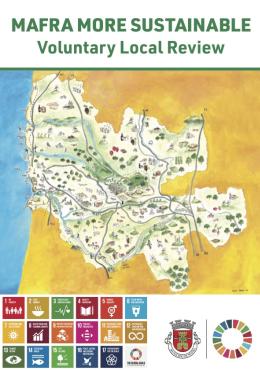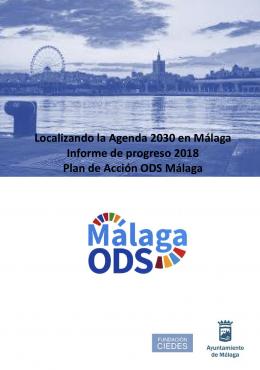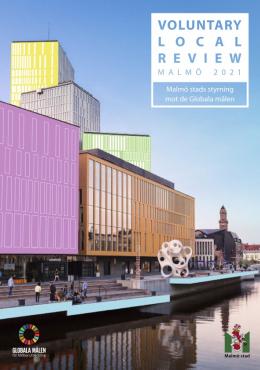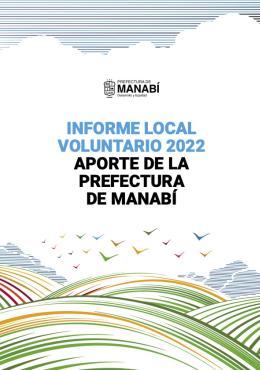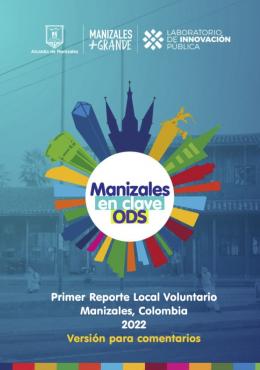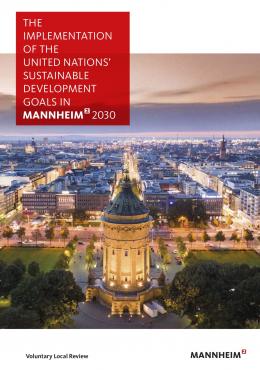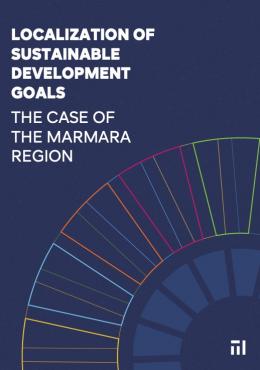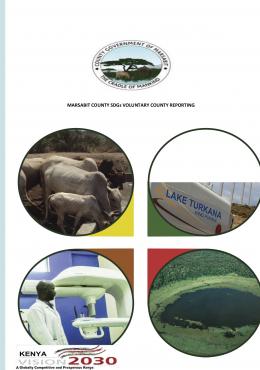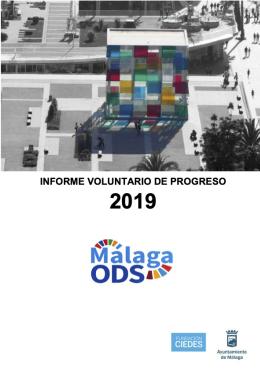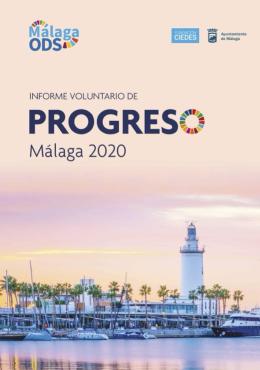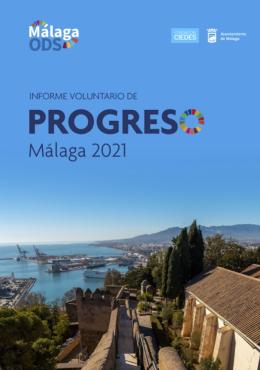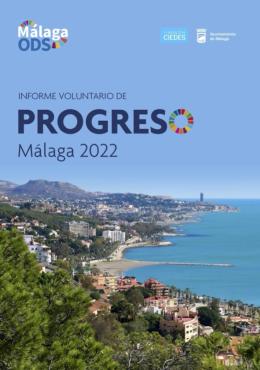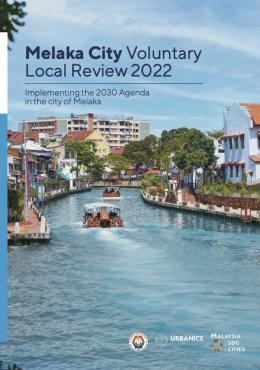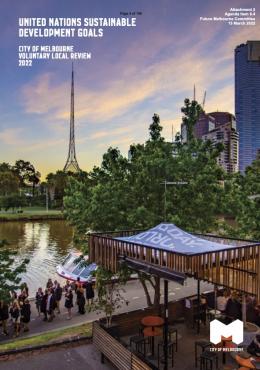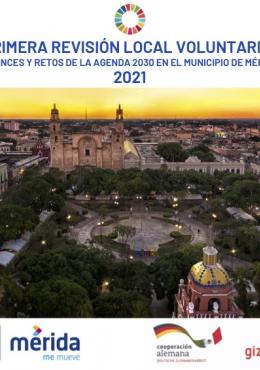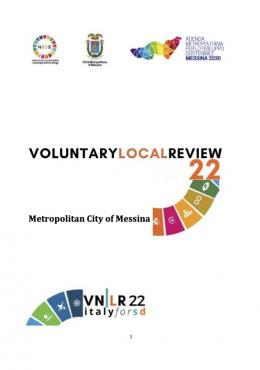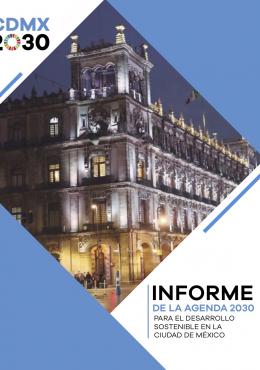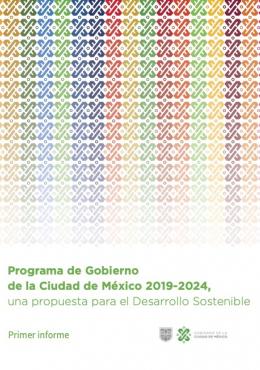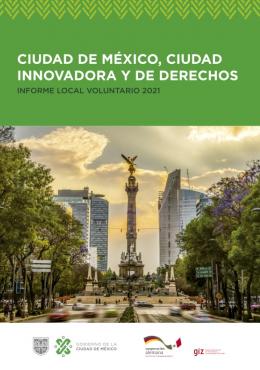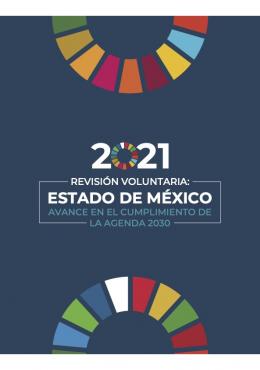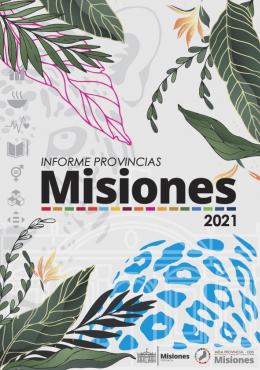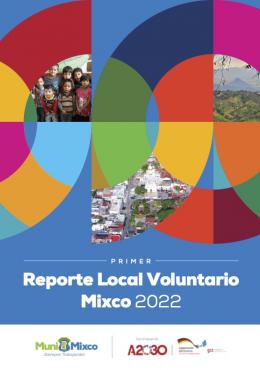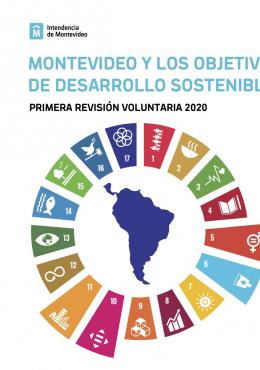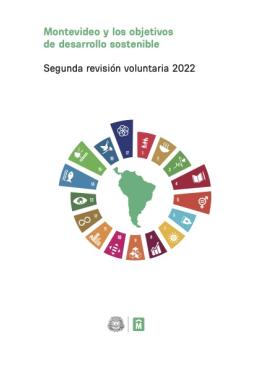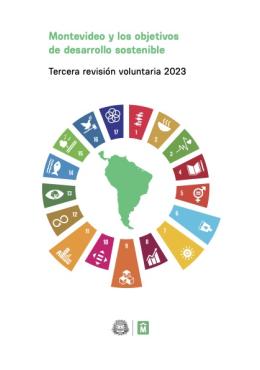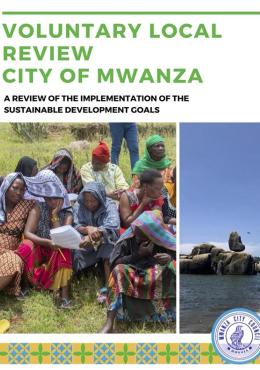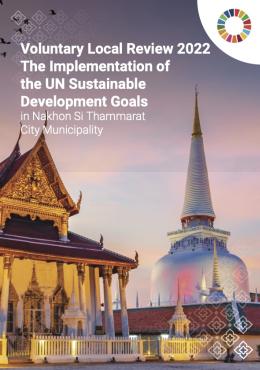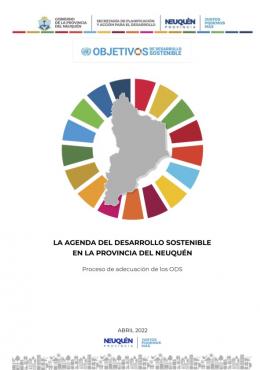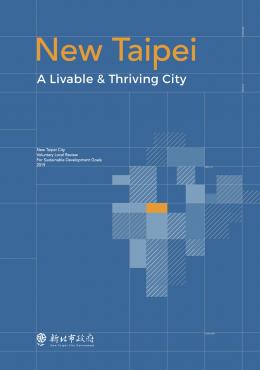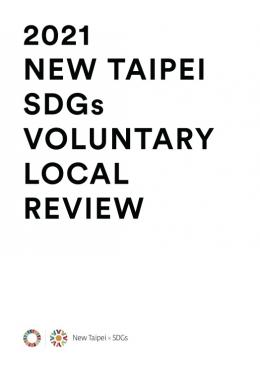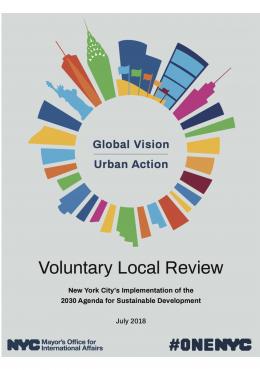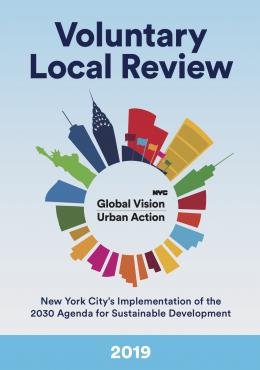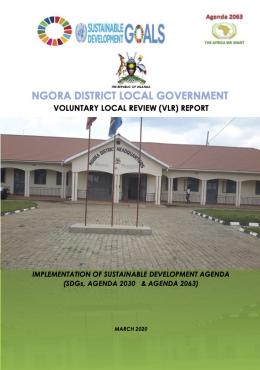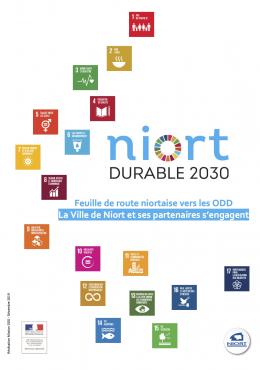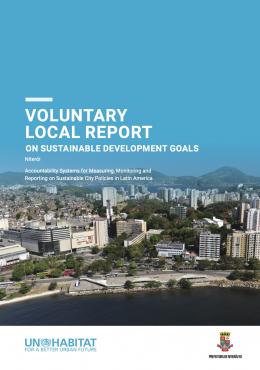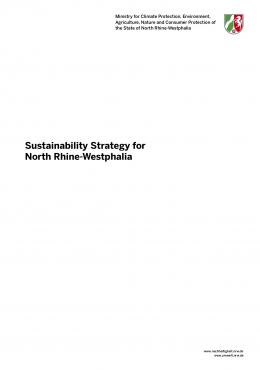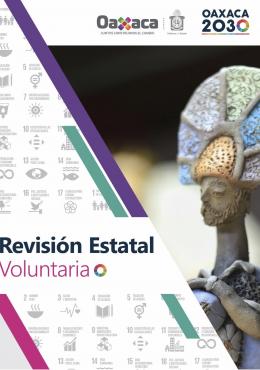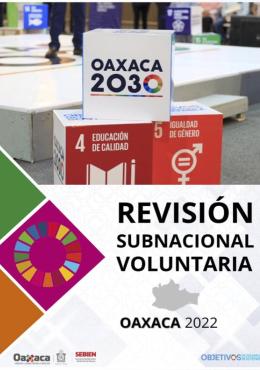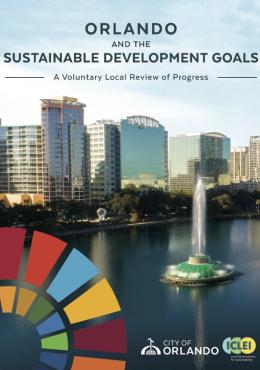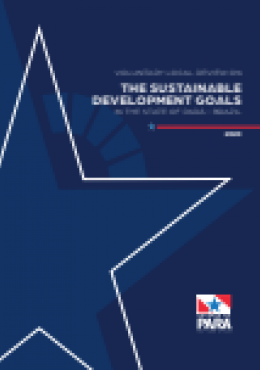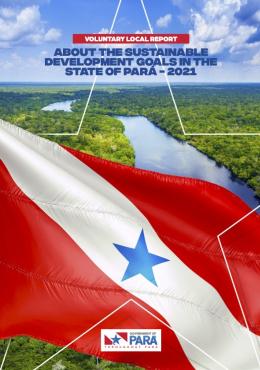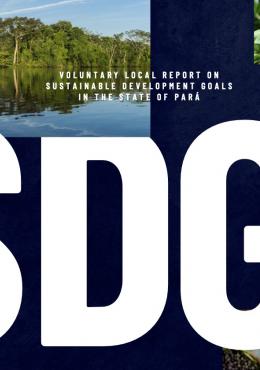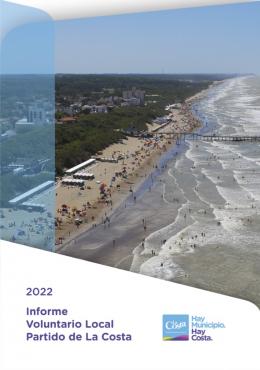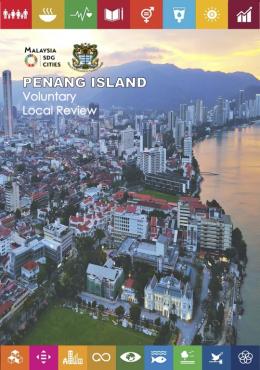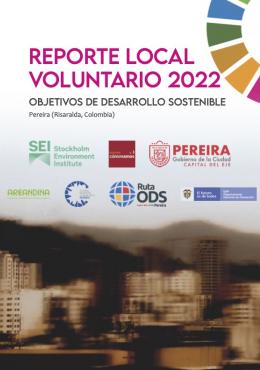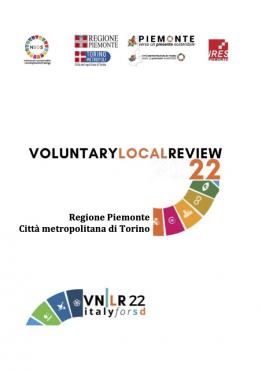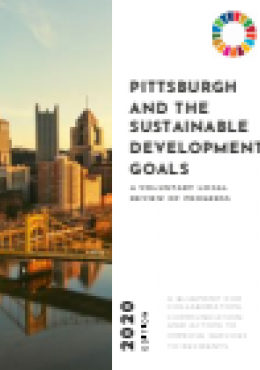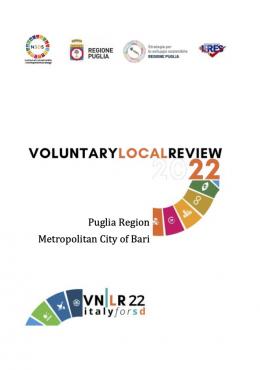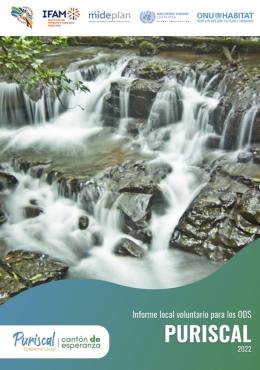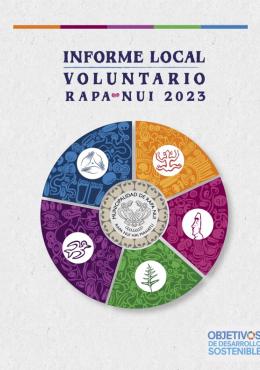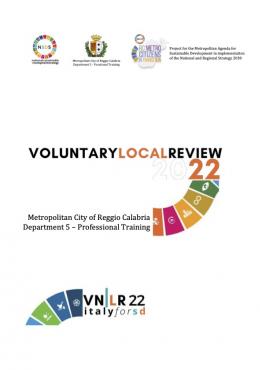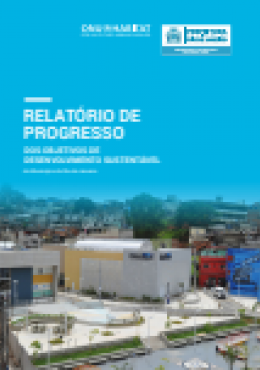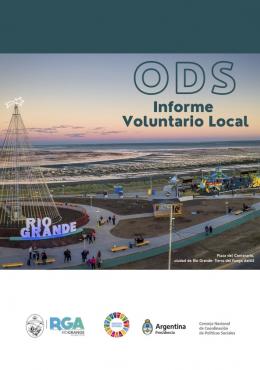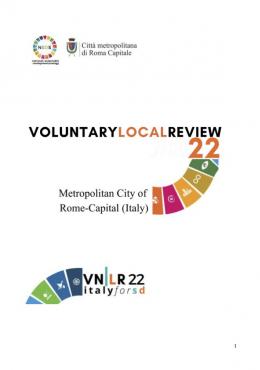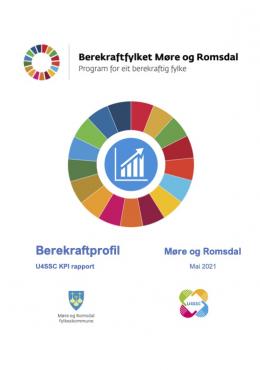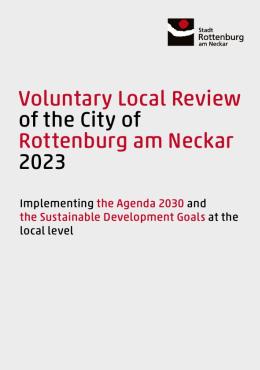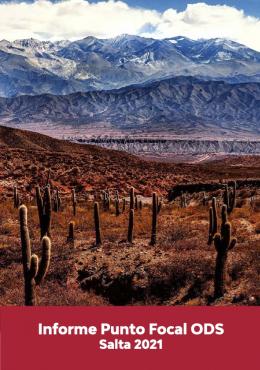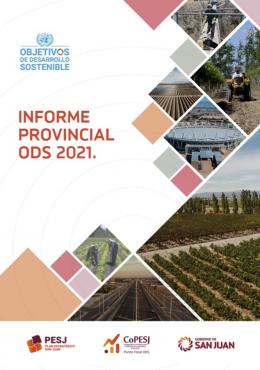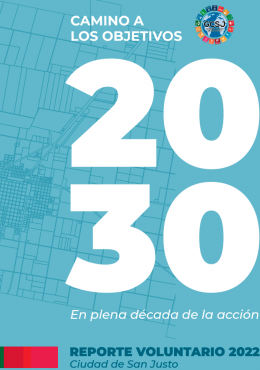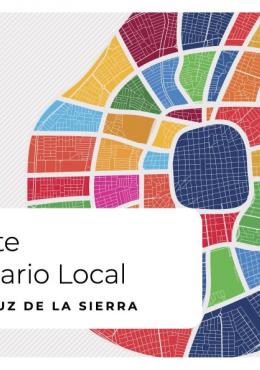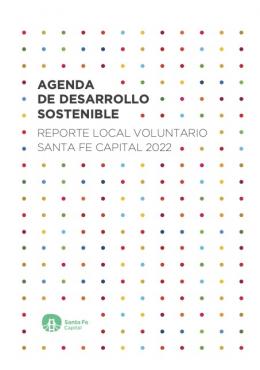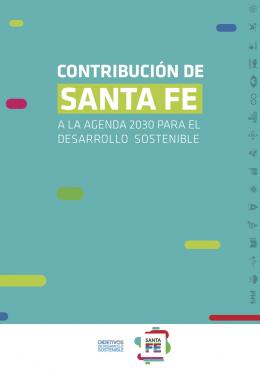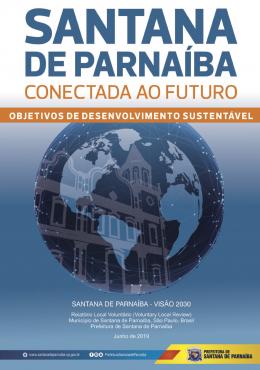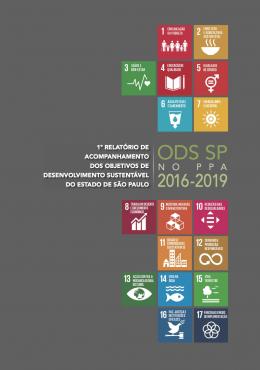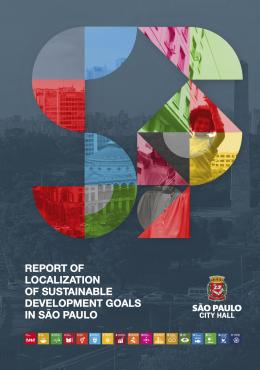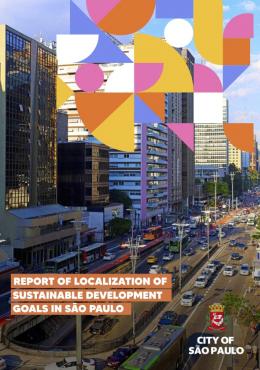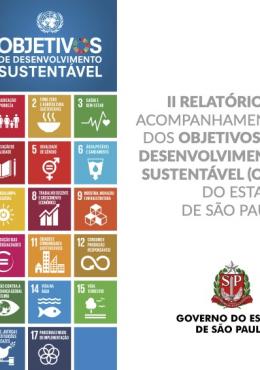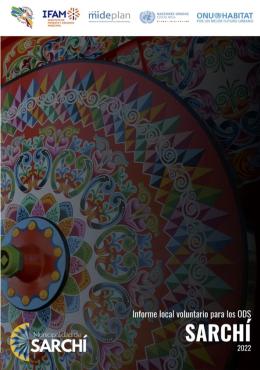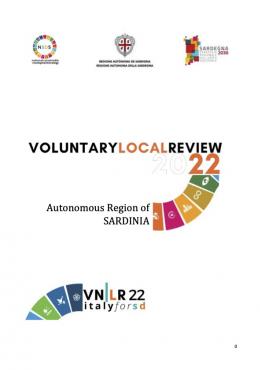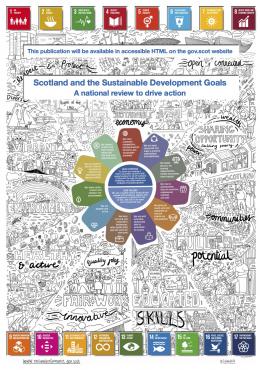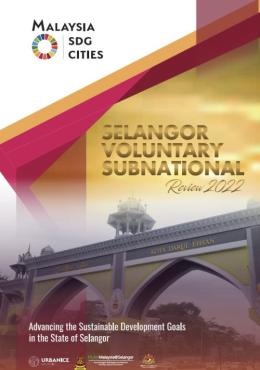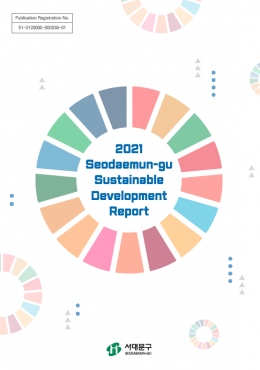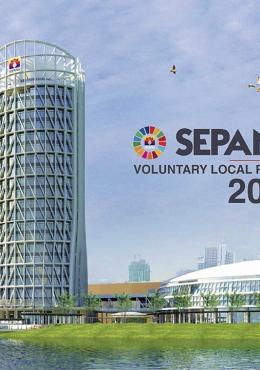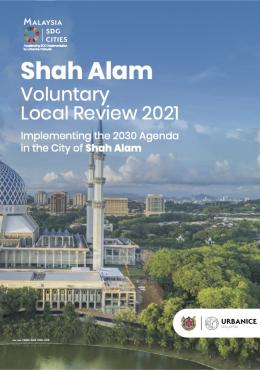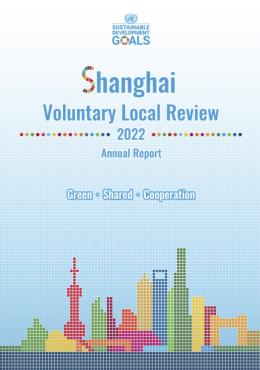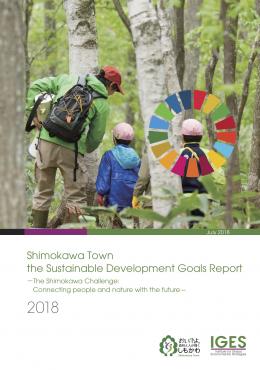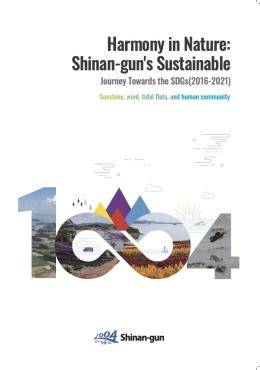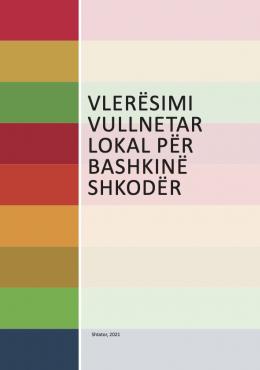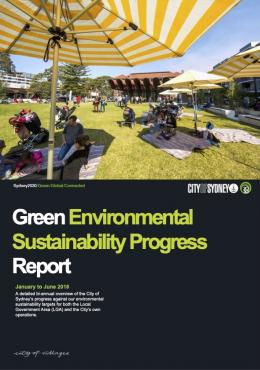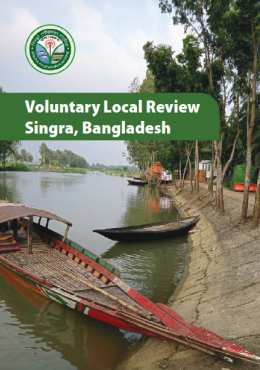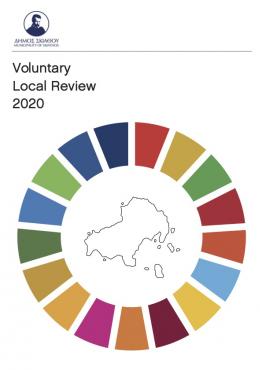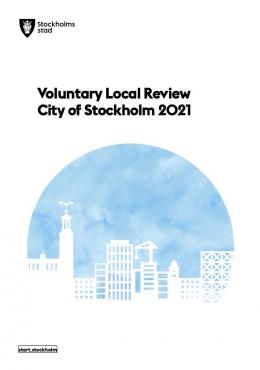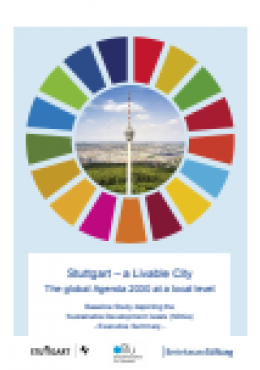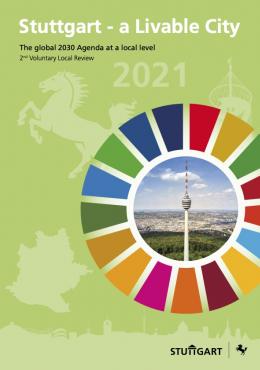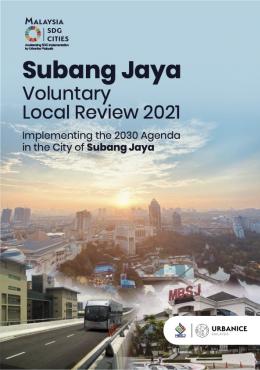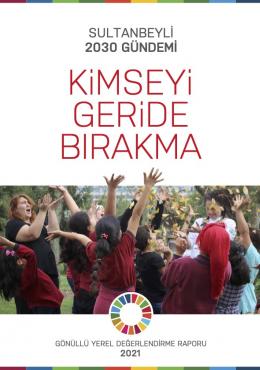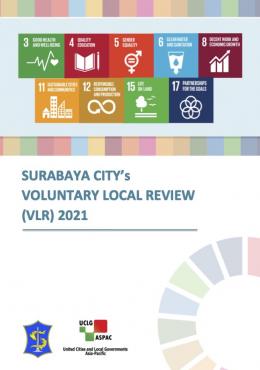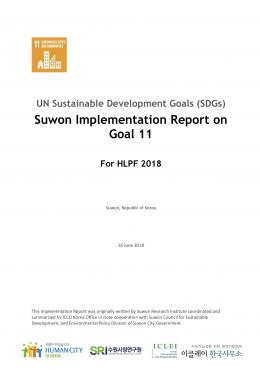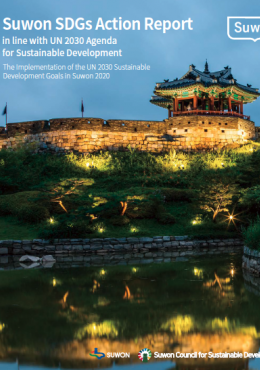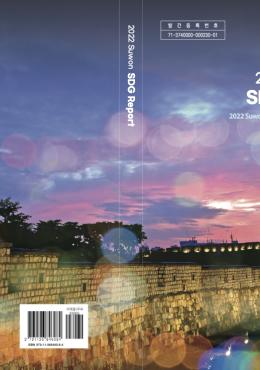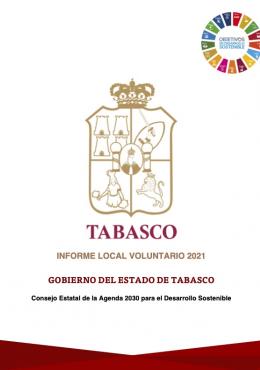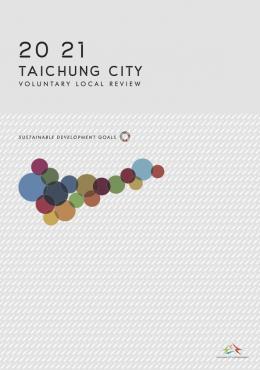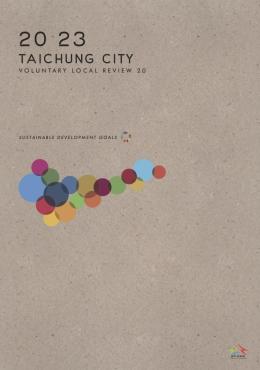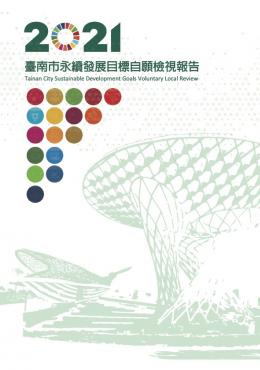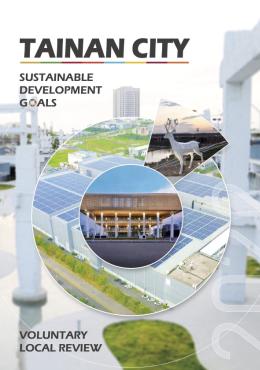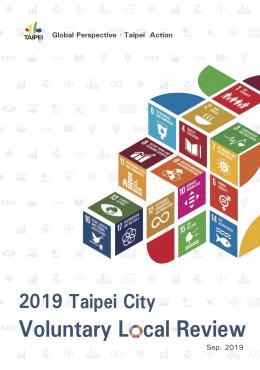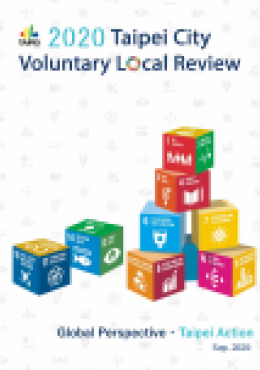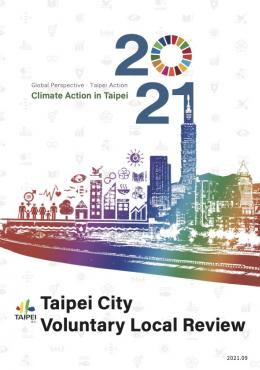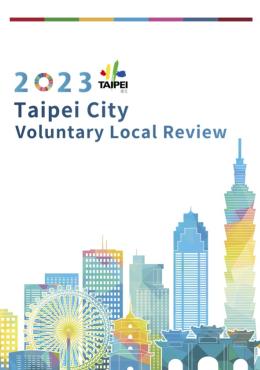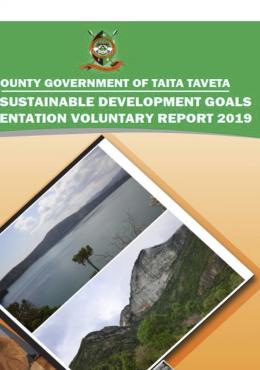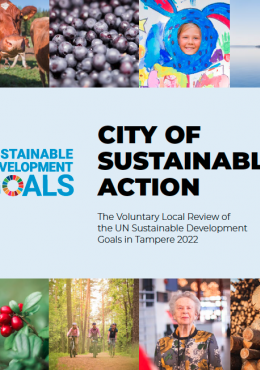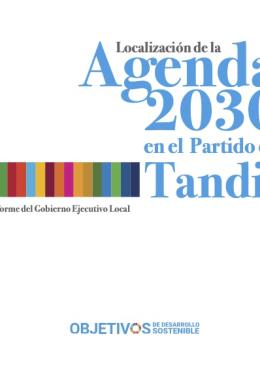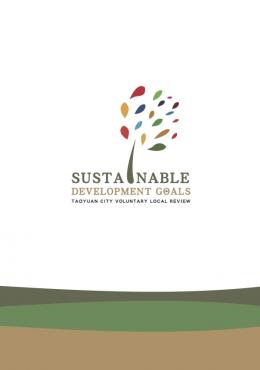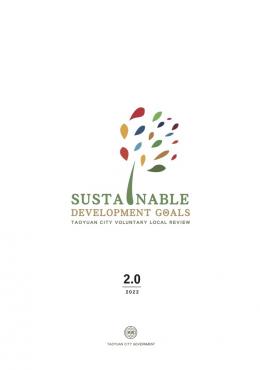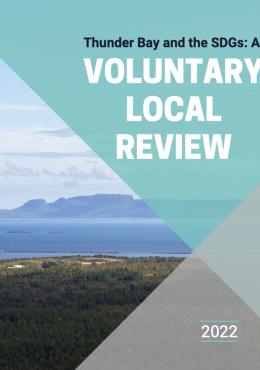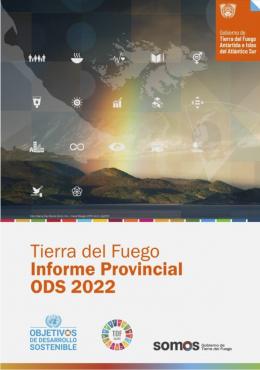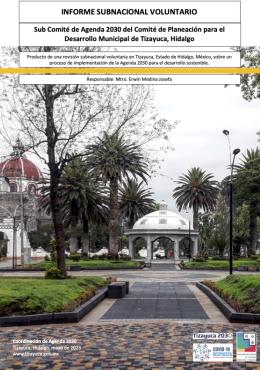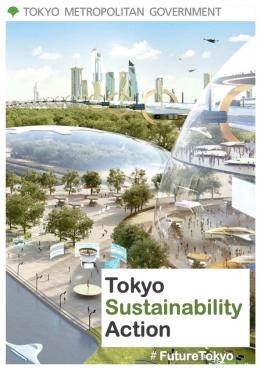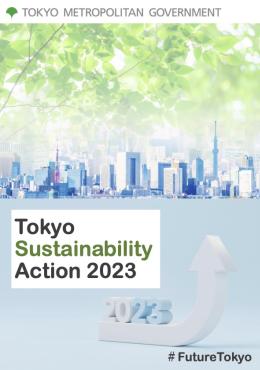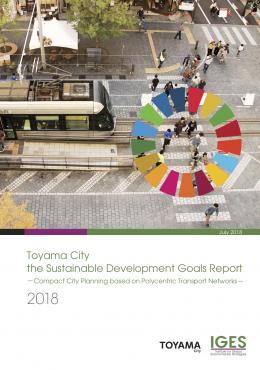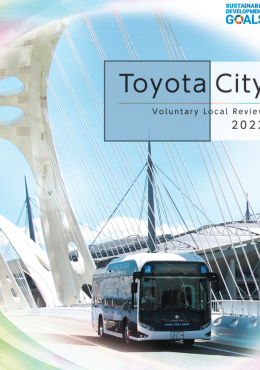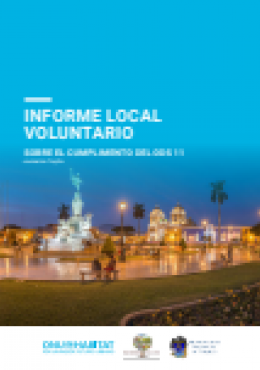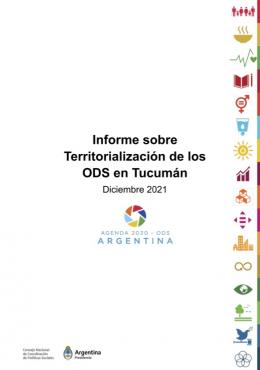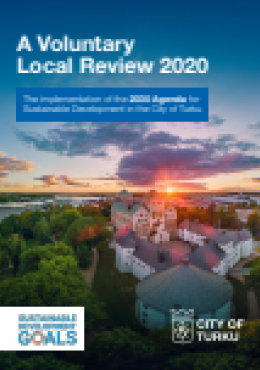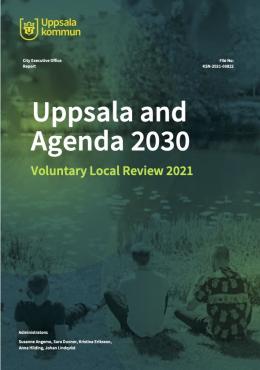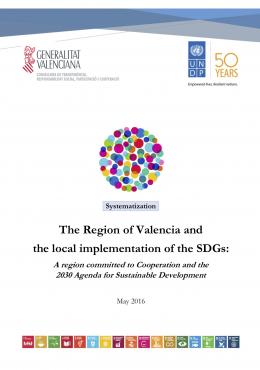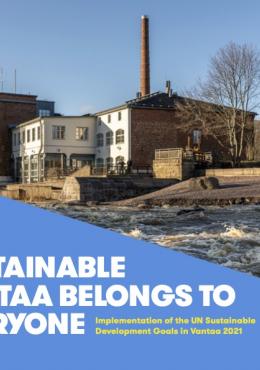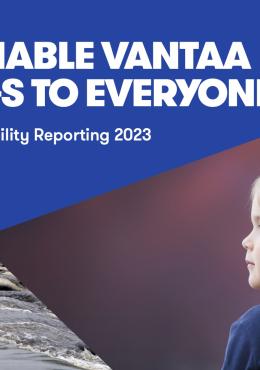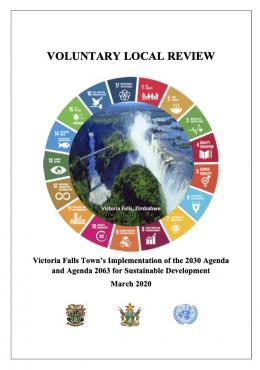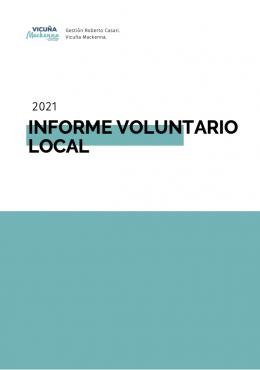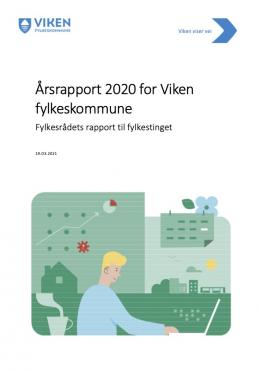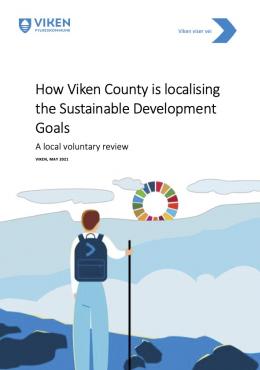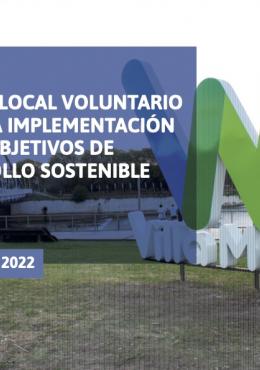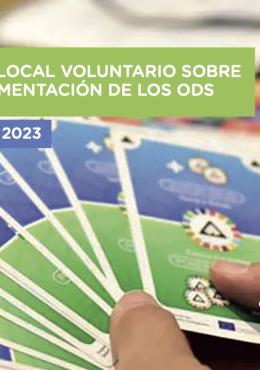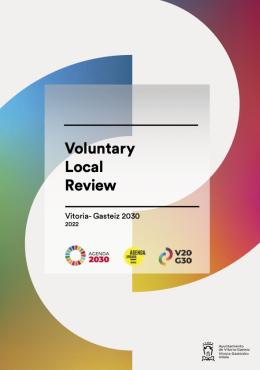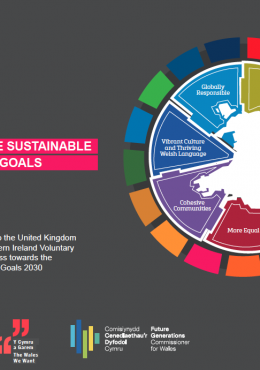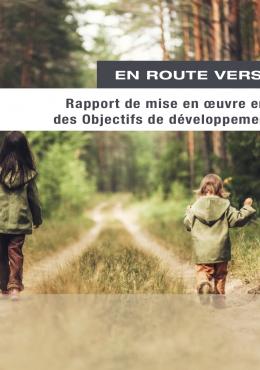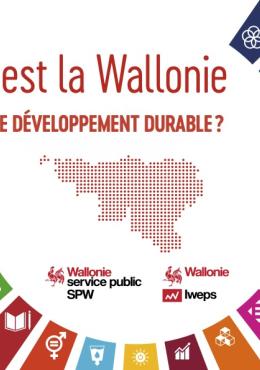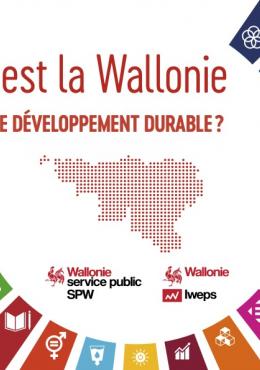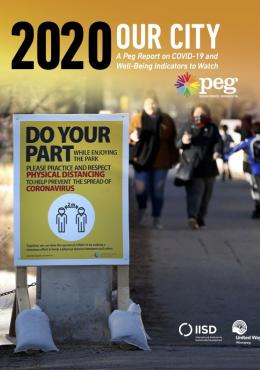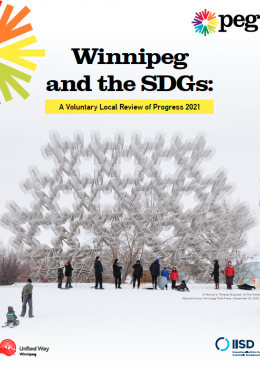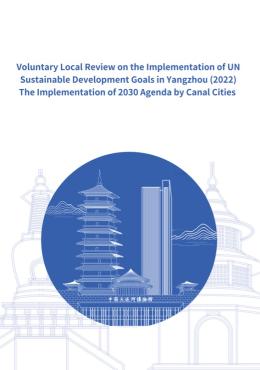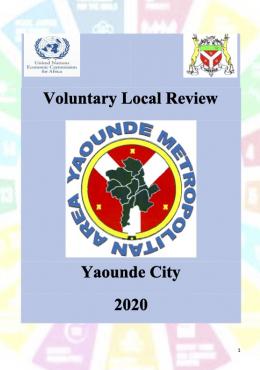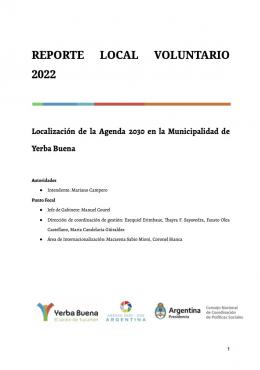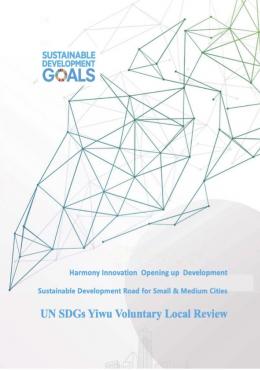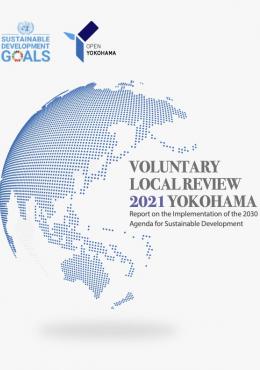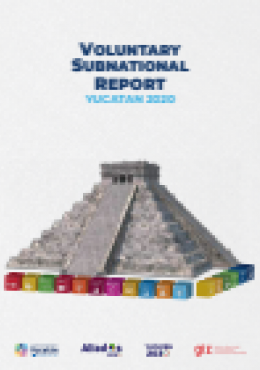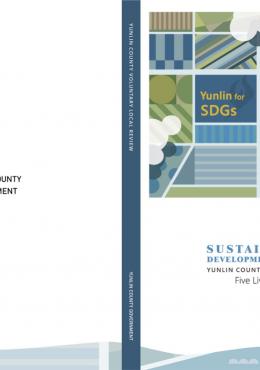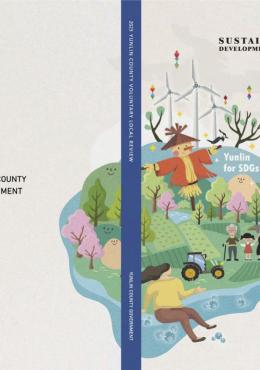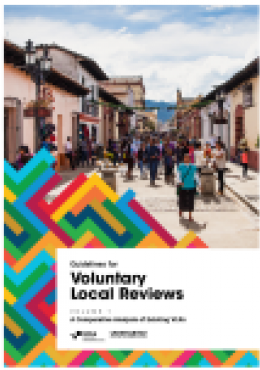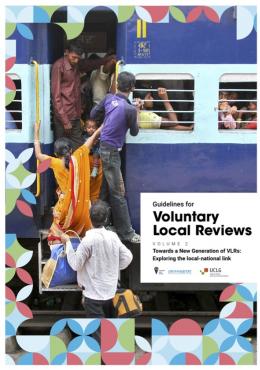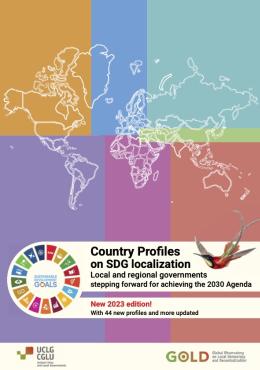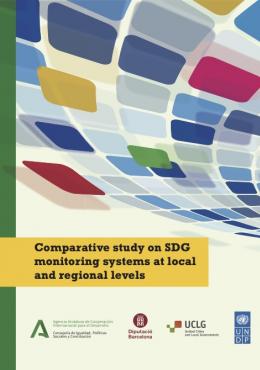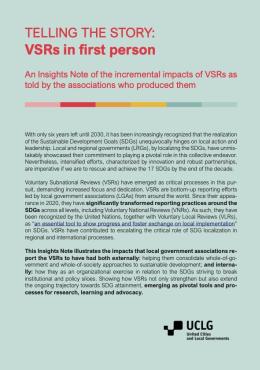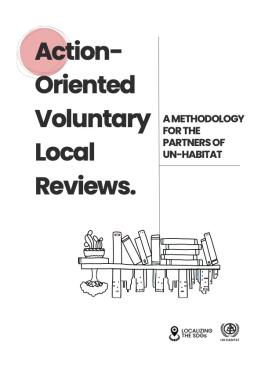The GOLD is committed to localizing the SDGs, the 2030 Agenda and the other major global agendas. With the start of the SDG acceleration decade, the GOLD is putting its efforts in supporting local and regional governments in the processes of monitoring and reporting on the implementation of the 2030 Agenda.
UCLG, on behalf of the Global Taskforce of Local and Regional Governments, has already facilitated and presented five reports called ‘Towards the localization of the SDGs’ at the United Nations' High-Level Political Forum on Sustainable Development that takes place yearly in New York. Other initiatives include developing and disseminating materials, participating in discussion groups and directly supporting local and regional authorities in their efforts to localize the SDGs and, particularly, to monitor and report on the achievements and challenges. Country-wide, bottom-up Voluntary Subnational Reviews and Voluntary Local Reviews are becoming crucial tools with which local and regional governments report on the state of SDG localization in their territories. Through the publication of the two volumes of the ‘Guidelines for VLRs’ along with UN-Habitat and the ‘Guidelines for VSRs’ with the CIB Working Group; the facilitation of the communities of practice on local SDG reporting; and the publication of the ‘Comparative study on SDG monitoring systems at local and regional levels’ with several partners, the GOLD, consistent with the overarching strategy of UCLG, aspires to contribute to achieving the SDGs and empowering local and regional governments in their endeavor.
- Report to the HLPF
- Voluntary Subnational Reviews
- Guidelines for VSRs
- Voluntary Local Reviews
- Guidelines for VLRs
- Country Profiles
- Comparative study on SDG monitoring systems at local and regional levels
- Guidelines for VSRs & VLRs and Insights Note
- Insights note on the impact of VSRs
- Action-oriented VLR methodology
UCLG, on behalf of the Global Taskforce of Local and Regional Governments, which comprises the 25 main global and regional networks of local and regional governments (LRGs), produces the annual "Towards the Localization of the SDGs" report. This report, which aims to report yearly on the state of SDG implementation at the local level around the world, has been produced and presented to the HLPF every year from 2017 to 2023.
The seventh report of the Global Taskforce of Local and Regional Governments to the HLPF, published in 2023, provides an analysis of the remarkable initiatives undertaken by LRGs to localize the SDGs as well as LRGs involvement in national coordination and reporting processes, with a particular focus on the 38 countries presenting Voluntary National Reviews (VNRs) this year.
It offers an overview on the role of LRGs in achieving the SDGs, with a particular focus on the SDG 11 – “Make cities and human settlements inclusive, safe, resilient and sustainable” – and facilitating a just and sustainable transformation of cities, regions, and territories from the bottom-up. It includes five thematic papers, devoted to exploring how LRGs are advancing the different dimensions of SDG 11, and through them, the achievement of all SDGs.
Report on the localization of SDG 5 on gender equality
Reports to the HLPF
Surveys - The localization of the SDGs and the 2030 Agenda
Voluntary Subnational Reviews (VSRs) are country-wide, bottom-up subnational reporting processes that provide both comprehensive and in-depth analyses of the corresponding national environments for SDG localization. They also include the experiences of LRGs from different parts of each country in implementing the SDGs on the ground.
The elaboration of VSRs has been facilitated by UCLG since 2020. Local government associations have developed VSRs in six pilot countries who reported to the 2020 High Level Political Forum (Benin, Costa Rica, Ecuador, Kenya, Mozambique and Nepal), in eight countries who did the same in the 2021 HLPF (Cape Verde, Germany, Indonesia, Mexico, Norway, Sweden, Tunisia and Zimbabwe) and in ten other countries who presented a VNR in 2022 (Argentina, Botswana, Cameroon, Côte d'Ivoire, Italy, the Netherlands, Pakistan, the Philippines, Sri Lanka and Uruguay). In 2022, Ecuador produced its third VSR. Together, these VSRs represent more than 16,000 LRGs.
Since 2020, 26 VSRs have been published, representing 165,000 LRGs and 1.25 billion inhabitants.
These reporting processes, along with the VLR processes, have had a positive impact in terms of multilevel dialogue, as well as on the dialogue between national associations and municipal governments. Results have been very positive in terms of enhancing local and regional participation in national reporting processes. For example, In Tunisia and Zimbabwe, local governments have been asked to summarise their contributions to integrate them within their country’s VNR. The VSRs of Benin, Costa Rica, Ecuador, Germany, Indonesia, Kenya, Mexico, Norway and Sweden have been mentioned, partially quoted or fully integrated in the respective VNRs. In Cape Verde, local governments were associated with the reporting unit and, in Nepal, the national associations were invited to form part of the national SDG Steering Committee.
On this webpage you can find the eleven VSRs that were produced in 2022 along with the nine produced in 2021 and the six produced in 2020.
2023 VSRs
2022 VSRs
2021 VSRs
Guidelines for VSRs
This publication provides guidelines for those local and regional government associations that are willing to embark on the project of developing their own VSRs in a way that serves as input for their national VNRs, with the aim of helping to strengthen the localization of the SDGs. It provides the tools necessary to further enhance the potential of VSRs as instruments with which to increase LRG ownership of the 2030 Agenda and other global commitments and to strengthen multi-level and multi-stakeholder dialogue.
The Guidelines are meant to be flexible so that each local and regional government association can adapt them to its own needs, objectives, resources and capabilities.
The drafting of these Guidelines is the culmination of a rich, participative and co-productive process. The Guidelines are based on experiences shared in a series of VSR workshops organised by UCLG and UCLG-CIB throughout 2021. The four workshops, held in March, April, May and October 2021, brought together the associations preparing VSRs in 2020 and 2021 and set in motion a number of in-depth exchanges on matters such as structure, methodology, the selection of case studies and indicators, key findings, the dissemination and use of findings, and negotiations with national governments. The aim of the sessions was to exchange ideas in order to enrich the VSRs and to instil good practices into these VSR guidelines, highlighting the elements to replicate, in order to inspire other associations to produce VSRs in the coming years.
Guidelines for VSRsAlthough there exists no fixed working definition for Voluntary Local Reviews (VLRs), all documents produced so far share a primary purpose: assessing and presenting advances on the fulfilment of the 2030 Agenda from a local standpoint and through a locally-developed narrative. VLRs are proof that local and regional governments have been at the forefront of implementation, awareness-raising, training and coalition-building. VLRs allow LRGs to (vertically) complement the information that is being provided at the national level. They also allow them to (horizontally) share and learn mutually from other LRGs, strengthening the sense of community and joint destiny and ownership that underpins the SDG framework and its discourse. VLRs represent an aspirational statement and the commitment of a community to a global endeavour: the Sustainable Development Goals. In this webpage you will find several VLRs that have been produced until 2020 by local and regional governments throughout the different countries and regions of the world.
Guidelines for VLRs
Just like Voluntary Subnational Reviews, Voluntary Local Reviews have proven to be powerful accelerators of the SDG localization process worldwide. To capture this potential and build on our longstanding alliance to localize the SDGs, UCLG and UN-Habitat created the VLR Series to support the VLR/VSR global movement. The VLR Series aims to provide national, local and regional governments as well as communities with cutting-edge knowledge and best practices on SDG monitoring and reporting along with opportunities for exchange, peer learning and international engagement.
The Guidelines for VLRs vol. 1 aim at showcasing the value of local reporting as much more than a part of the reporting process. These Guidelines provide LRGs with an overview of the current approaches to the VLR exercise. They do so by studying the key elements underpinning the VLR process: a) what institutions and actors are actually being involved in a VLR?; b) where is the VLR process located institutionally in the broader scheme of multilevel governance?; c) what contents are VLRs including, and why?; and d) how are VLRs being made, with what resources and what goals?
The Guidelines vol. 2 explore the link between VLRs and Voluntary National Reviews (VNRs), a connection that remains largely preliminary and informal, but is essential for achieving the SDGs by 2030. The guidelines demonstrate how VLRs and the global movement around them have revamped multi-level dialogue, increasing the demand for an effective multi-level cooperation and reinforcing the centrality and effectiveness of SDG localization. This volume also showcases growing evidence of the impact of VLRs/VSRs on VNRs and the national monitoring process.
Taken together, the two volumes of the Guidelines (1) provide an overview of the VLR process; (2) demonstrate of how VLRs and VNRs can add value to one another; and (3) propose key recommendations on how to strengthen multilevel cooperation for data generation and management as well as for enhanced participatory process and means of implementation.
The Country Profiles on SDG localization present a brief analysis of the national strategies, coordination mechanisms and reporting processes related to the 2030 Agenda for Sustainable Development. Most importantly, they highlight the involvement and, in many cases, the leading role of local and regional governments towards the localization of the SDGs.
These Country Profiles are an important complement to the report that the Global Taskforce of Local and Regional Governments presents yearly to the United Nations High-Level Political Forum: Towards the Localization of the SDGs. They share the goal of this report: to encourage action at the local, national and international levels by indicating both areas of progress and remaining gaps in the recognition of LRGs’ role, based on the principles of subsidiarity and autonomy, and in their integration into decision-making and the implementation of the SDGs.
The 181 Country Profiles are available in two formats: all together in one report, or by country, presented below by region.
The Comparative study on SDG monitoring systems at local and regional levels has been developed within the overall framework of the UCLG and UNDP cooperation on the localization of the SDGs, along with the Andalusian Development Cooperation Agency (AACID) and the Barcelona Provincial Council.
The study analyzes and systematizes the different systems of indicators that have been developed so far by different kinds of stakeholders: local and regional governments, national authorities, supranational organizations, academia, private sector and the civil society. The report will be used as a working document to advance the reflection, improve exchange and collaboration on monitoring, reporting and indicators for the SDGs among local and regional governments and partners. It further aims to serve as a tool for local and regional governments to find inspiration when choosing the most suitable way to track progress of SDG localization in their territories according to their priorities, capacities and resources.
Insights note on the impact of VSRs
Voluntary Subnational Reviews (VSRs) are positively changing local governance for sustainable development. This is what local government associations (LGAs) from all over the world have shared in a participatory process led by UCLG aiming to ascertain the impact of VSRs. The main messages and best practices have been collected and illustrated in the document “Telling the Story: VSRs in First Person. An Insights Note of the incremental impacts of VSRs as told by the associations who produced them” (see below).
The VSRs have enhanced local-national interlocution for sustainable development, bringing to the attention of the national authorities the challenges and needs experienced by local governments and their communities that require action at both the national level and from the bottom-up. As a consequence, they have often revitalized decentralization processes that were losing ground and sparked national commitments to increasing the financial resources allocated to local governments. VSRs have also represented a way of ensuring the local perspective in the Voluntary National Reviews.
Looking inwards, the VSRs have strengthened LGAs’ and their members’ commitment to the 2030 Agenda, for example, by representing a first step to collect systematic data on SDG localization in a country-wide manner. Additionally, they have increased the commitment of LGAs’ members with the SDGs, becoming the ultimate localization ownership exercise and propelling synergies with the VLRs.
Finally, the VSRs have ensured a whole-of-society approach from the ground up, fostering multistakeholder alliances for more transparent and accountable action, attracting international alliances and support, and increasing local governments’ and associations’ visibility.
To sum up, the VSRs are much more than a reporting tool: they emerge as pivotal tools and processes for research, learning and advocacy. It is the hope and ambition of the constituency that these policy and reporting tools be given an official status within multilateral processes such as the High-Level Political Forum.
Action-oriented VLR methodology
he new Action-Oriented VLR Methodology aims to strengthen the anchoring of VLRs within SDG Localization and local decision-making processes. It is primarily directed to local and regional governments wanting to explore the VLR process and conduct impactful, action-oriented VLRs. It responds to two specific questions: “How is an Action-Oriented VLR developed?” and “What’s after a VLR?”.
The methodology is designed to be flexible to suit different national and territorial contexts, considering potential resource and data constraints, or complementary national frameworks. Readers are encouraged to adapt this methodology as needed and to take ownership of the VLR process for a successful implementation that is relevant to their needs and circumstances.
The methodology is developed by UN-Habitat in partnership with United Cities and Local Governments (UCLG) and in close coordination with a wide variety of international partners.


